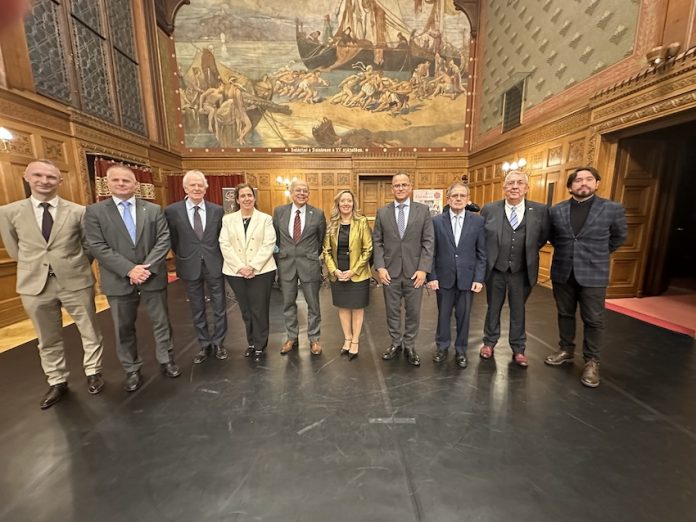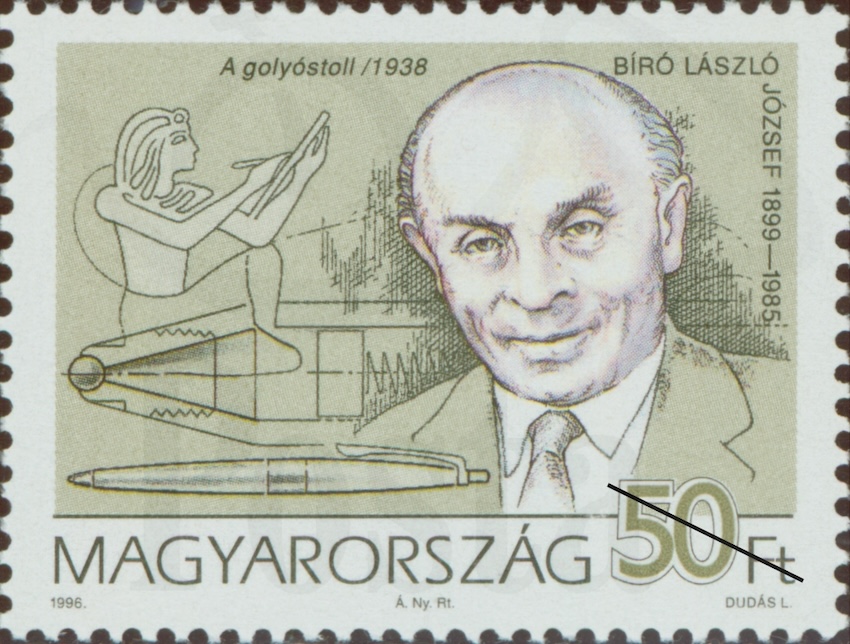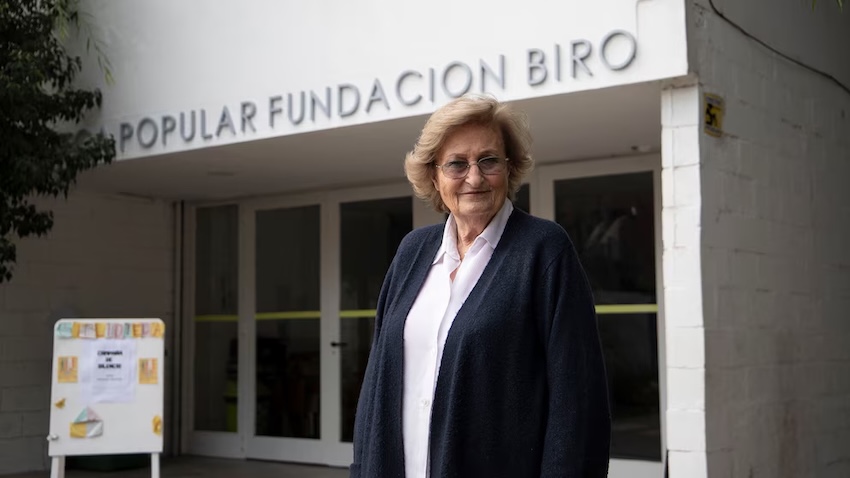Edited by Anna Popper
The Hungary-Latin America Friendship Section of the National Assembly, in cooperation with the Embassy of the Argentine Republic in Budapest, hosted a special salon event on 26 November 2024, to commemorate the 100th anniversary of diplomatic relations between Hungary and Argentina. The year-long celebrations culminated in the Hunting Hall of the iconic Hungarian Parliament.
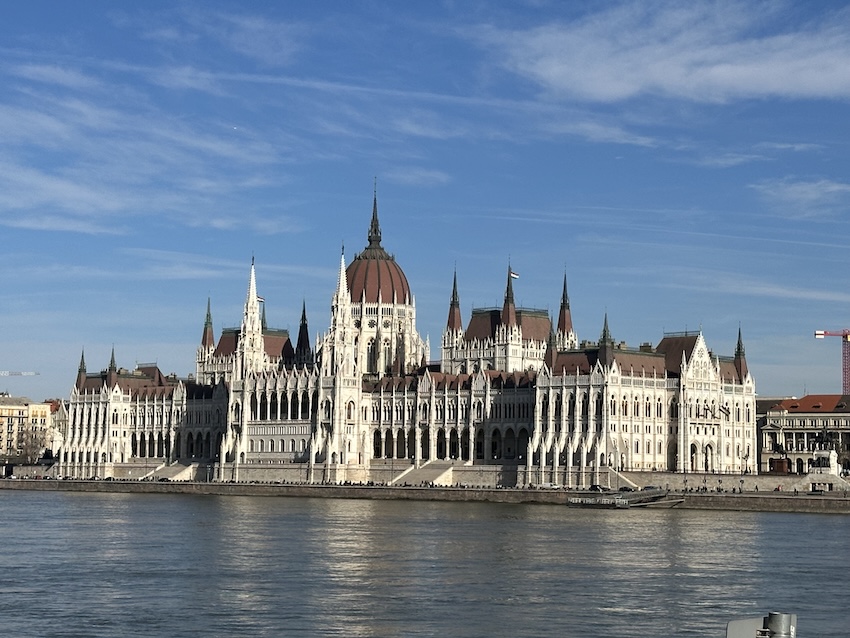
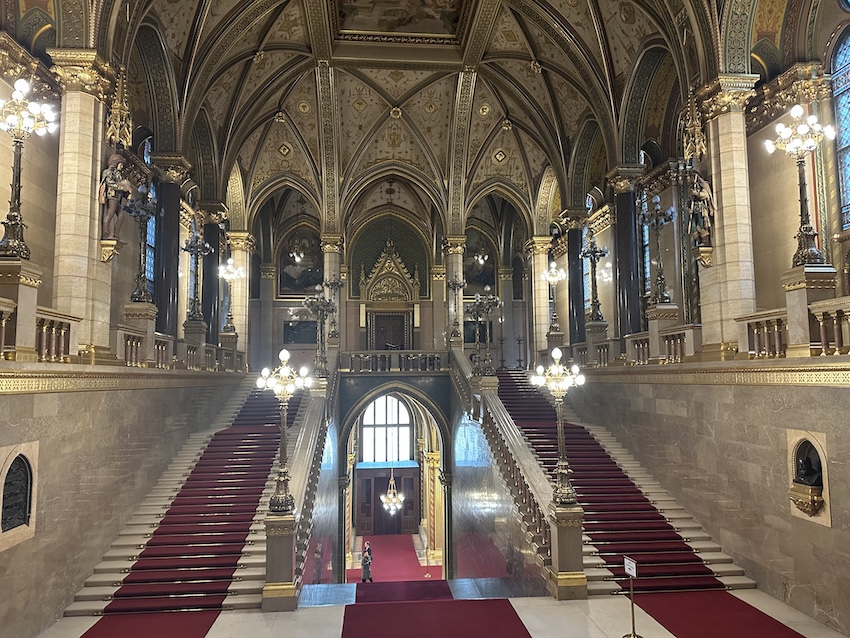
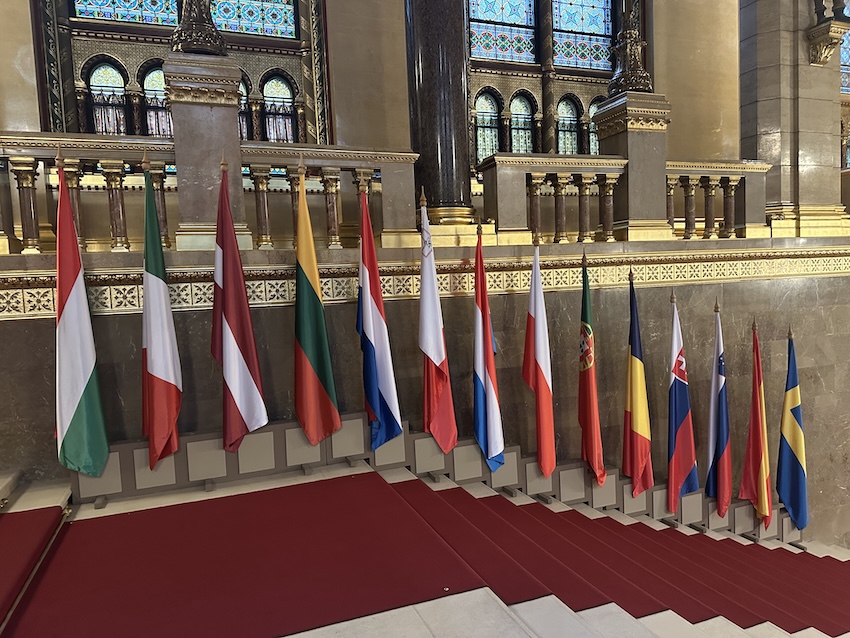
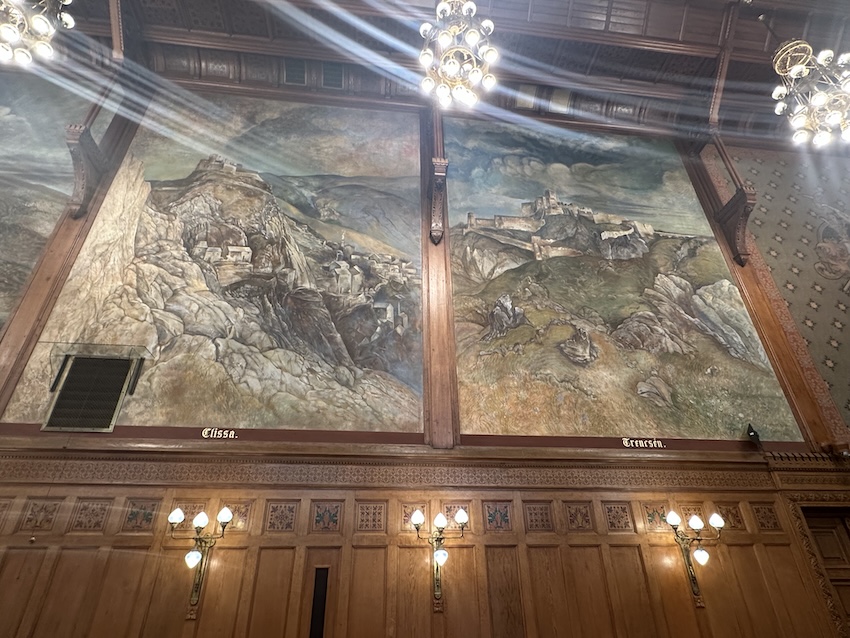
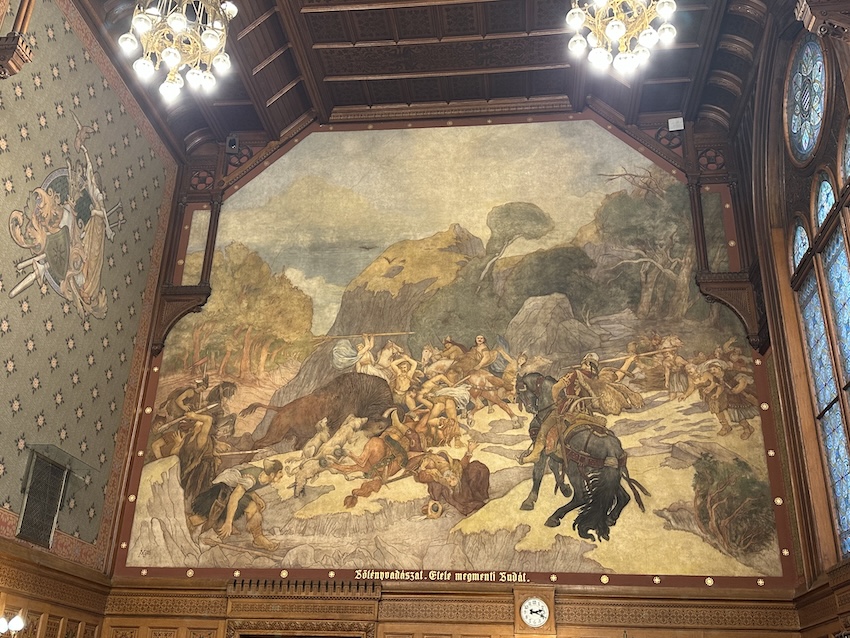
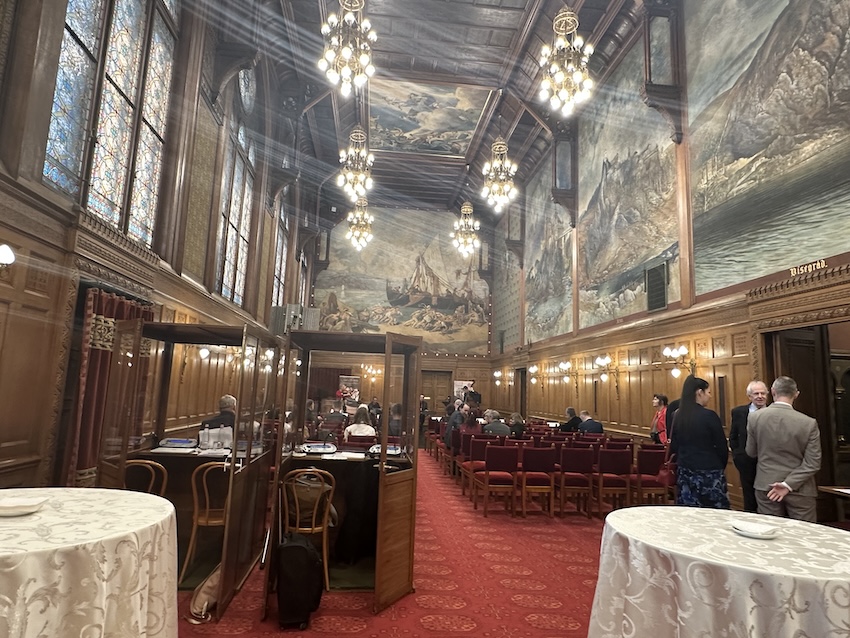
The gathering brought together distinguished guests, including the ambassadors of Latin American countries accredited to Hungary – Argentina, Brazil, Colombia, Cuba, Ecuador and Peru – as well as the Ambassador of Spain. Former Hungarian ambassadors who had served in Latin America, representatives of the Hungary-Latin America Friendship Section of the National Assembly, Hungarian high school students studying Spanish, notably from the Bolyai János Gimnázium in Kecskemét, and many friends of Argentina were also in attendance.









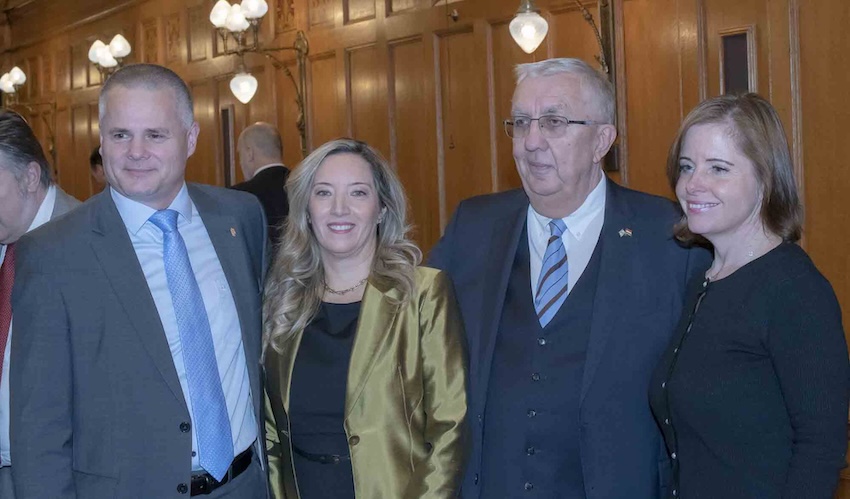
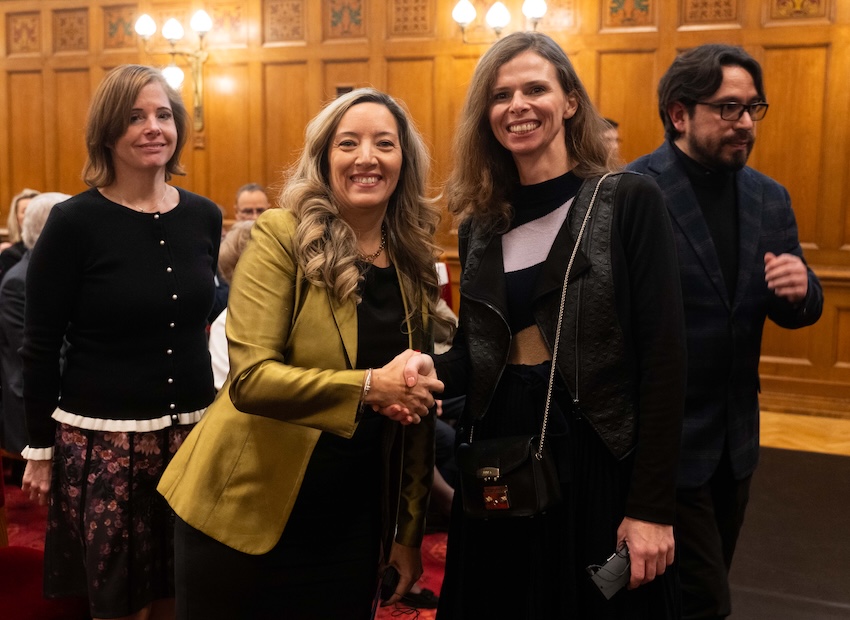
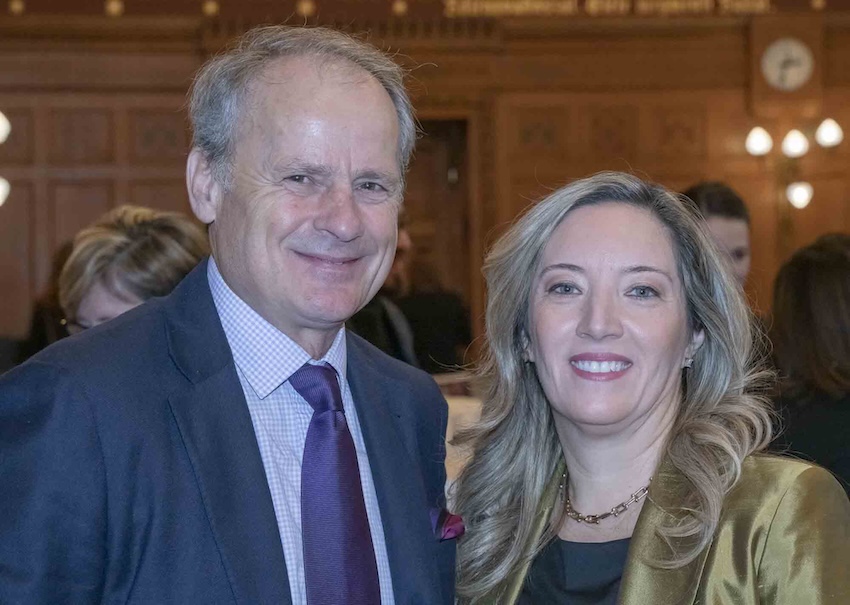
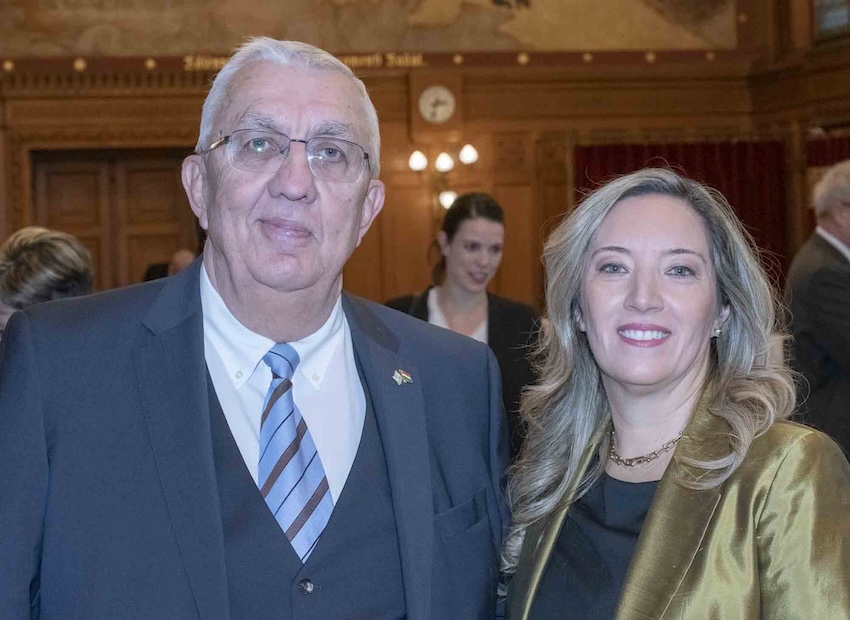
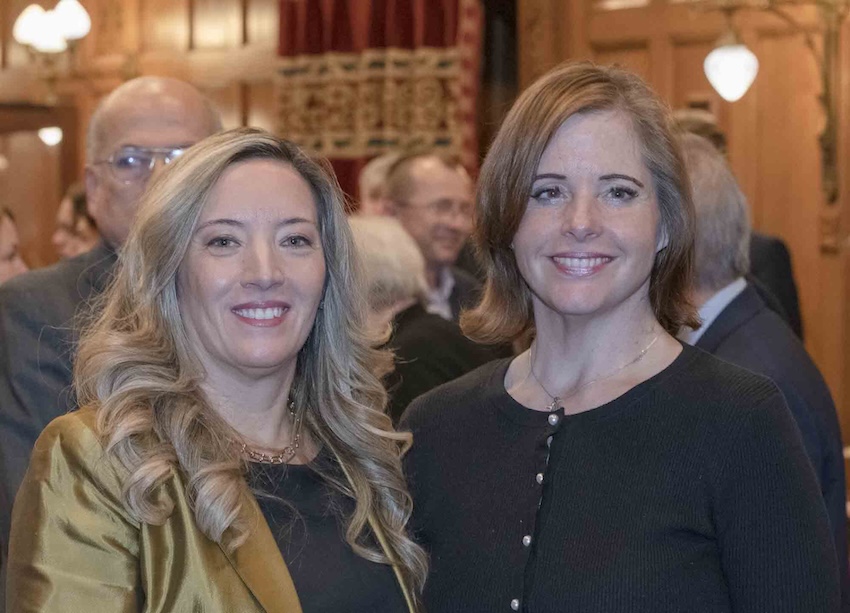
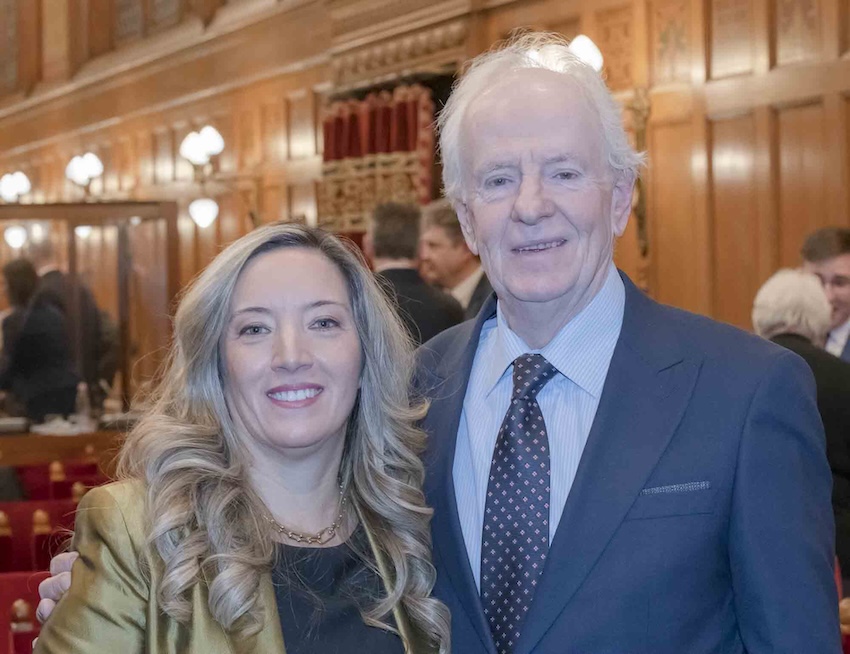
The program began with the greeting words by Ms. Mónika Bartos, MP, President of the Hungary-Latin America Friendship Section. She warmly welcomed the audience and emphasized the significance of Hungary’s multifaceted relations with Latin American nations, which are rooted in shared values, mutual interests and respect.
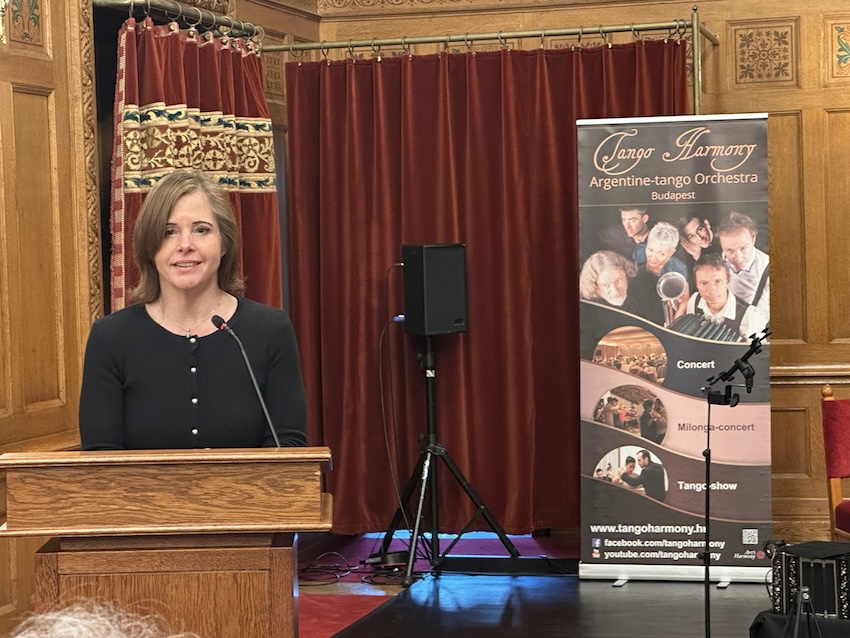

Mr. László Salacz, MP, President of the Hungary-Argentina Friendship Group of the National Assembly, followed with reflections on the historical and cultural ties between Hungary and Argentina. He highlighted the enduring partnership between the two nations and its importance in fostering mutual understanding. He also underscored the significance of commemorating a century of diplomatic relations and expressed his optimism for continued collaboration in the future.
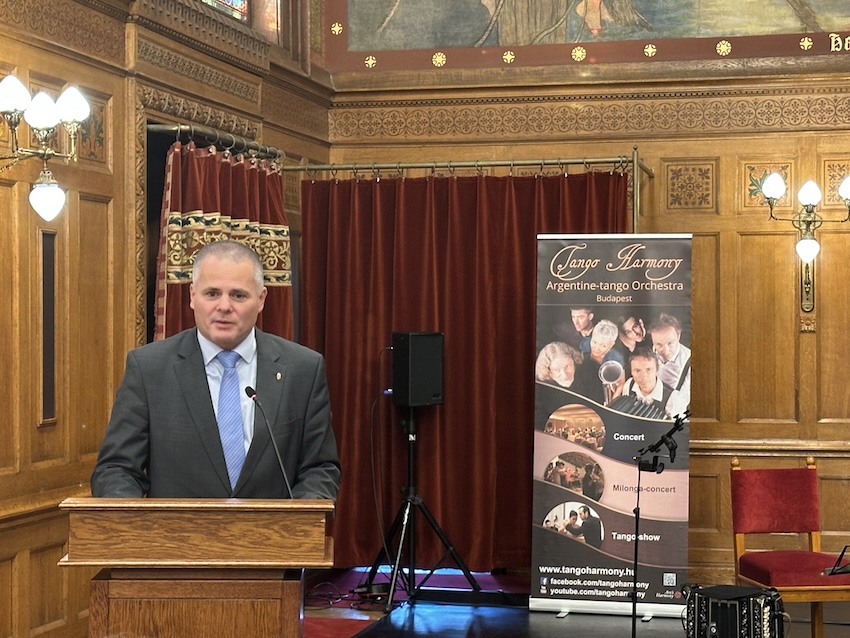
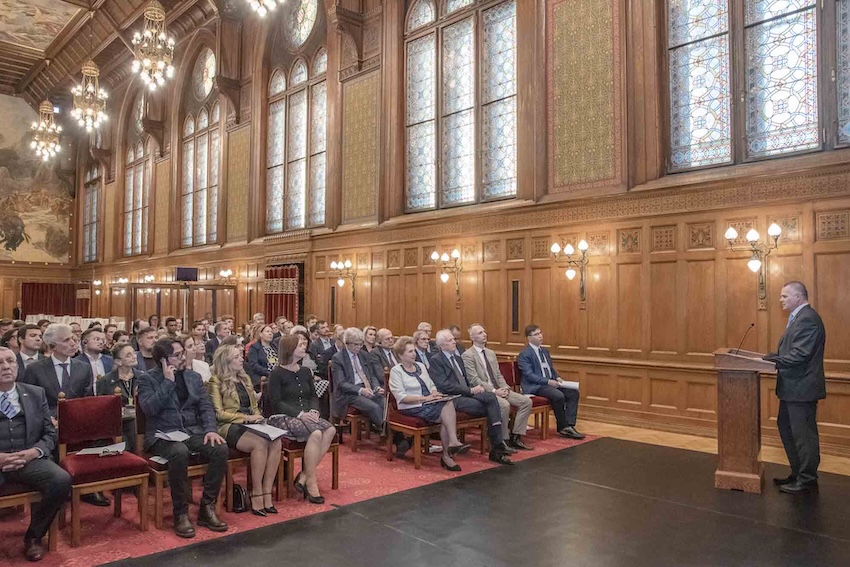
Mr. Péter Sutyinszki, General Director of the Department for Latin American and Caribbean Affairs at the Ministry of Foreign Affairs and Trade, gave an insightful introduction. He provided a broader context for Hungary’s engagement with Latin America and underlined the strategic and cultural importance of these relations.
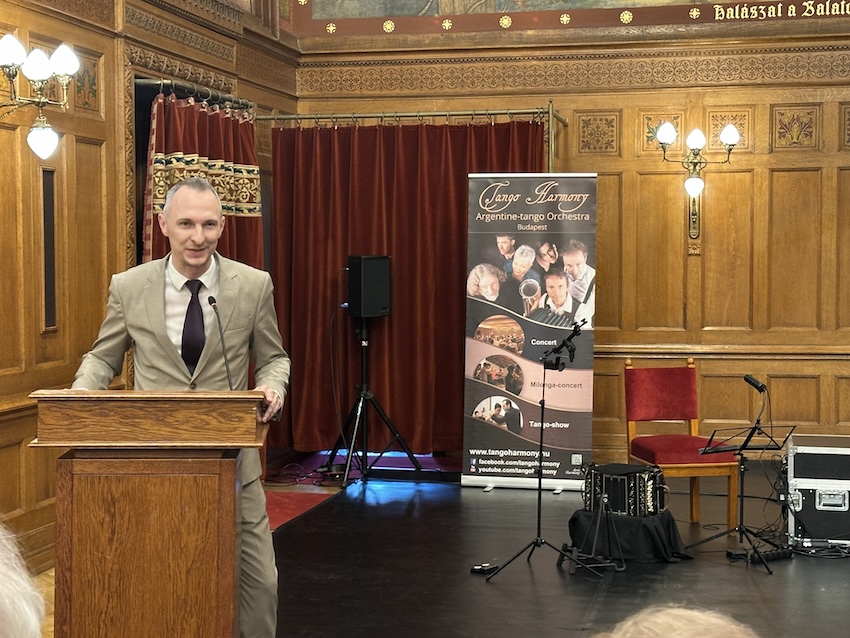
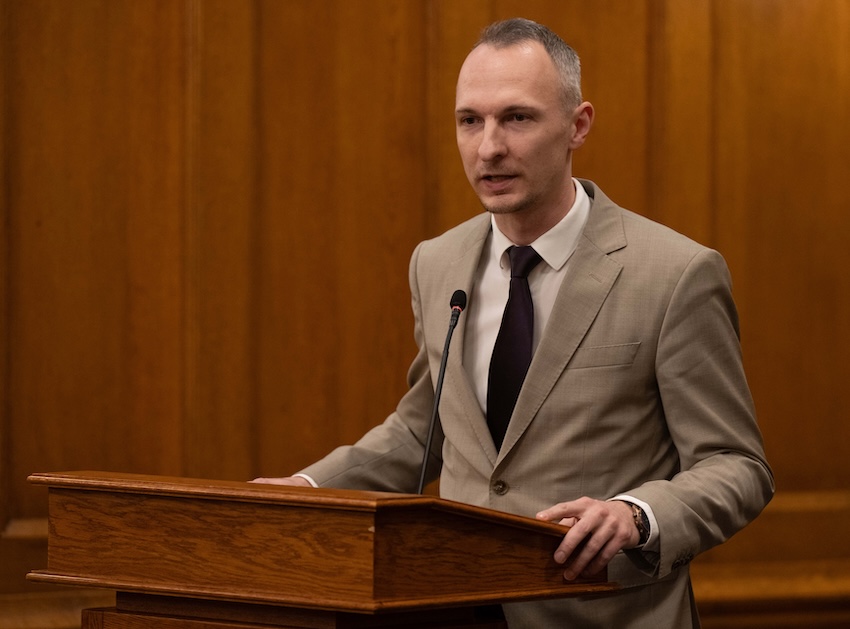
The Hungarian National Assembly was also represented by Ms. Márta Mátrai, First Officer of the Hungarian National Assembly. In her address, she shared personal reflections and experiences from her recent visit in the second half of October to Argentina and Peru, where she had commemorated the anniversary of the 1956 Hungarian Revolution alongside members of the Hungarian diaspora. They were warmly welcomed in both countries. She praised the Argentine society for providing a new home to Hungarian emigrants, who have made significant contributions to its development while preserving their cultural heritage. She also expressed gratitude for the strong bilateral ties and reflected on the shared history and cultural exchanges that have enriched both nations.
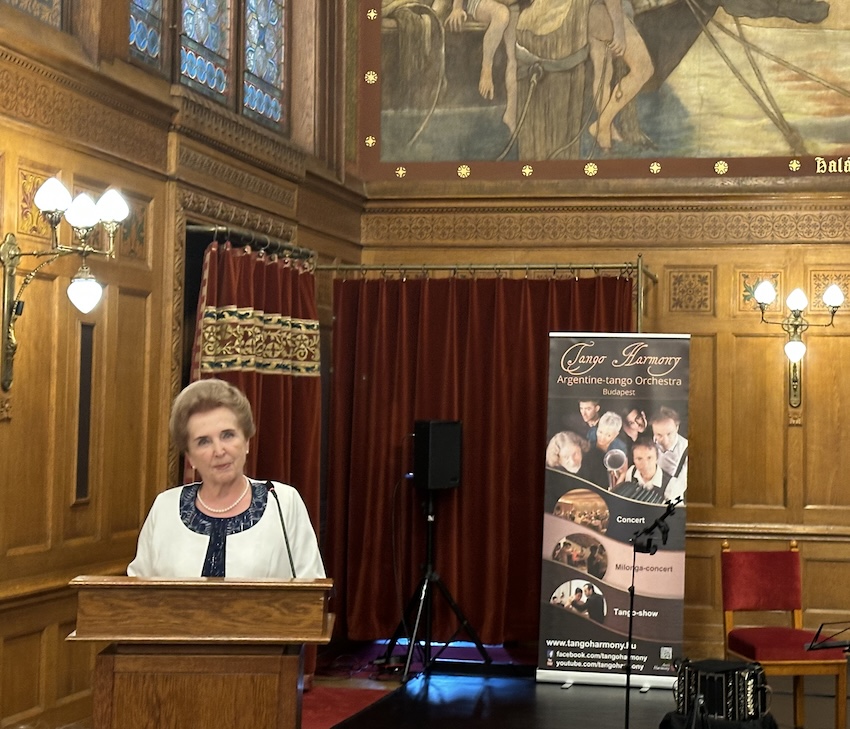
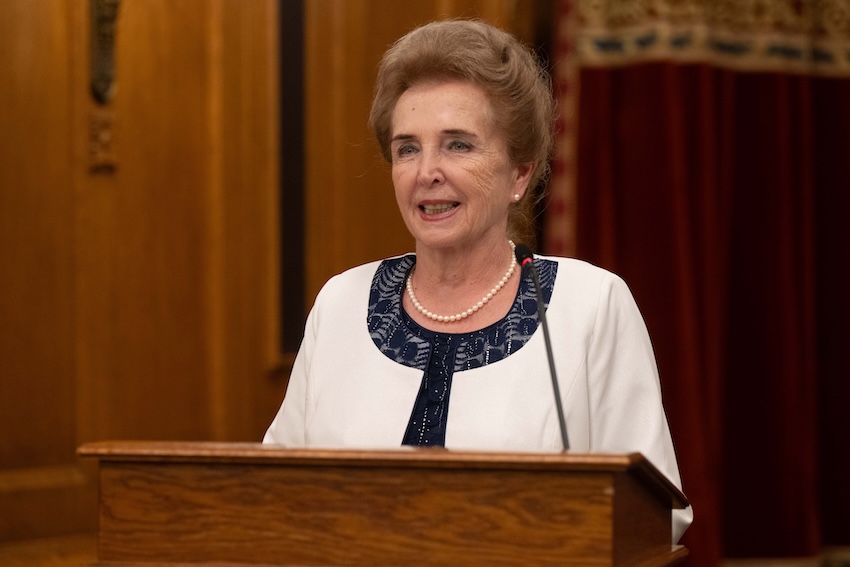
Her Excellency María Lorena Capra, Ambassador of the Argentine Republic to Hungary, delivered a heartfelt speech to an audience impressed by the venue’s enchanting atmosphere and the immense paintings on the walls conveying the richness of Hungarian history:
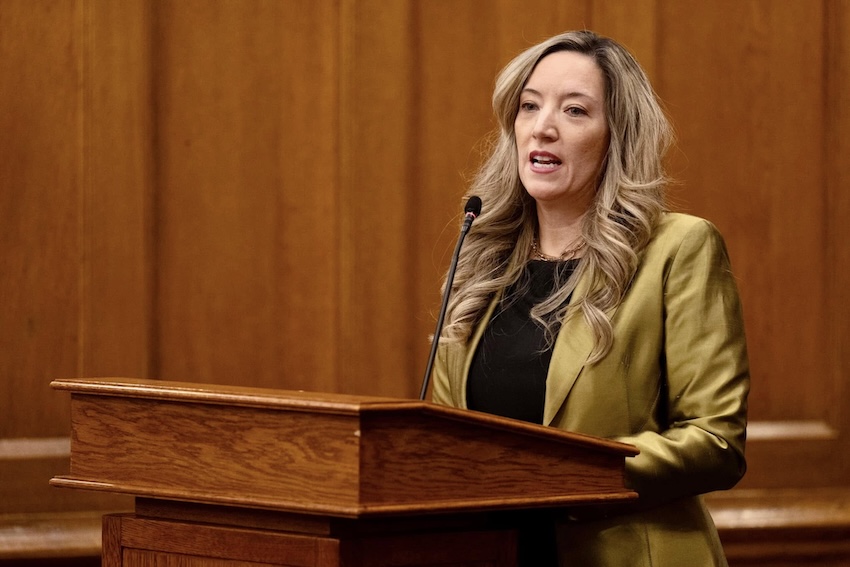
“Madam President of the Hungary-Latin America Friendship Group, Mr. President of the Hungary-Argentina Friendship Group, government authorities, esteemed colleagues and dear friends,
Today, in this magnificent Parliament, we gather to celebrate the centenary of the establishment of bilateral relations between our two countries. On this special anniversary, I wish to convey a heartfelt message of joy and friendship to the Hungarian people through their representatives.
We are honoured to be joined by distinguished friends who embody our shared history, mutual affection and the immense potential we hold as friendly nations with a forward-looking perspective.
A recent example of the strength of our bond was the visit of the Minister of Foreign Affairs and Trade, Péter Szijjártó to Buenos Aires on 8 November 2024. This visit continued the high-level engagements initiated with the presence of Prime Minister Viktor Orbán at the inauguration of President Javier Milei in December 2023.






During Foreign Minister Szijjártó’s visit, five bilateral agreements were signed in strategic areas: the peaceful use of nuclear energy, space cooperation, diplomatic training, the Stipendium Hungaricum scholarship program, and the creation of a Hungarian Studies Centre at the University of Buenos Aires. These agreements are clear evidence of the remarkable progress in our bilateral relations over the past year.



In the 100 years of our shared history, our nations have faced challenges, including the process of building democratic institutions, in which the legislative power – Parliament – played a pivotal role. Today, both countries can proudly showcase consolidated democracies, with republican and representative institutions serving as the foundation for our economic and productive potential.
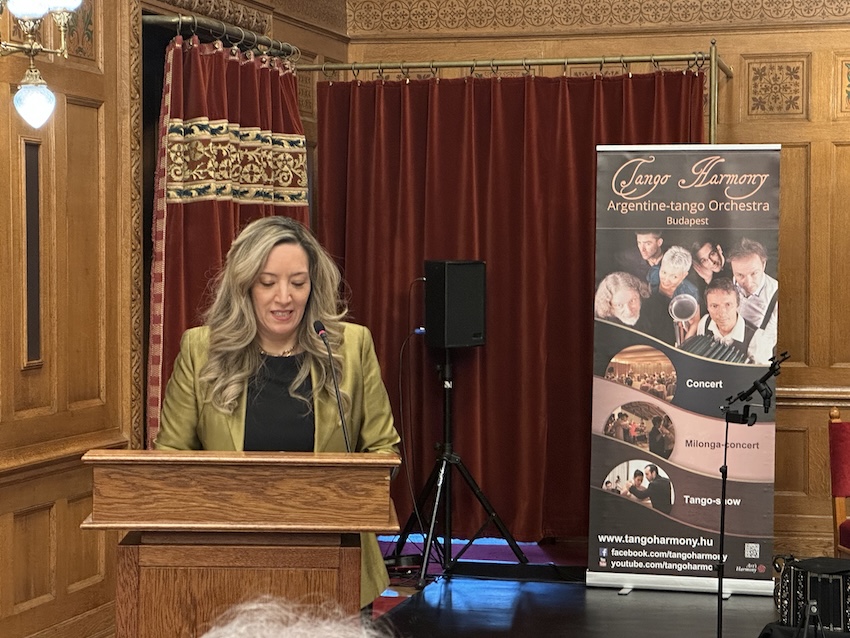
At key moments in their histories, both Argentines and Hungarians demanded political and economic freedom and a future consistent with their aspirations. Like Hungarians, Argentines are a people who deeply cherish freedom. In today’s turbulent world, this ideal resonates stronger than ever. Through shared values such as national sovereignty, free trade, counterterrorism and promoting peace, we are confident that our alliance will continue to grow, expanding into new strategic areas of mutual interest.
The Hungarian diaspora in Argentina has been and continues to be a vital contributor to our institutions, representing a fundamental pillar of our bilateral relations. Today, we celebrate, acknowledge and express our gratitude for their invaluable contributions.
Among the outstanding figures who symbolize our shared history, we remember Colonel Juan Fernando Czetz, a Hungarian military officer who spent much of his life in Argentina and founded the National Military College. Similarly, we honour Ladislao José Bíró, the prolific Hungarian inventor and journalist who became a naturalized Argentine citizen and gave the world the ballpoint pen.
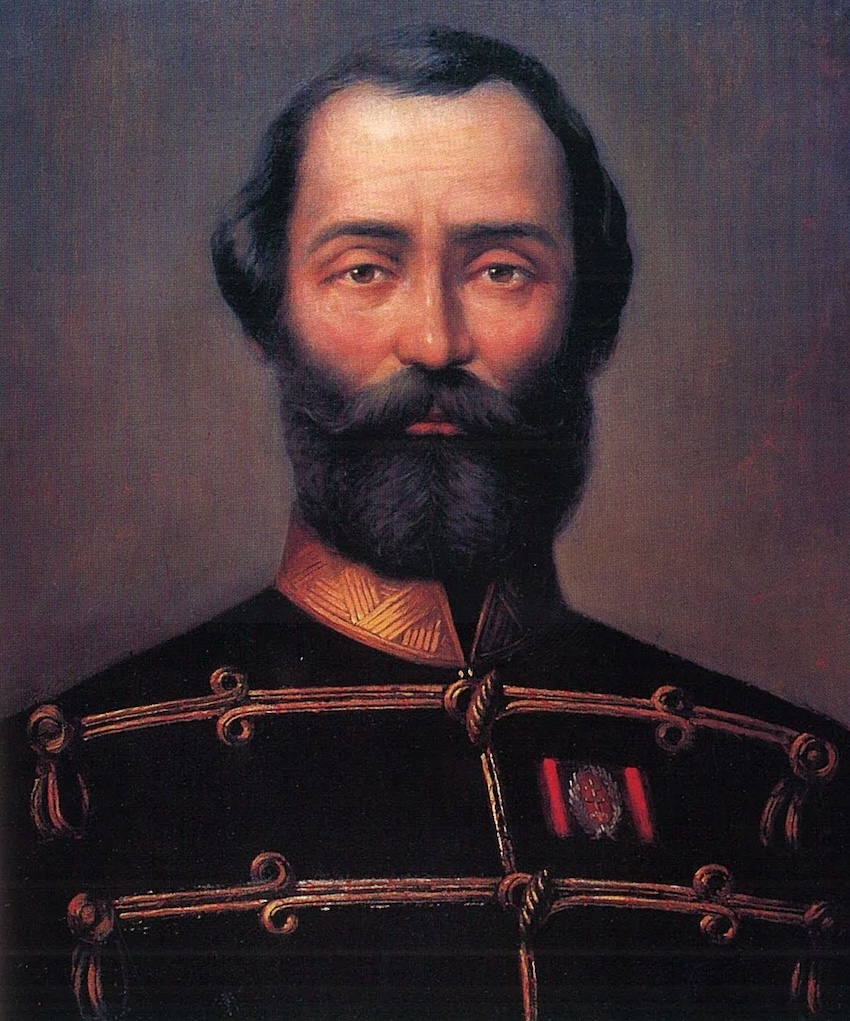
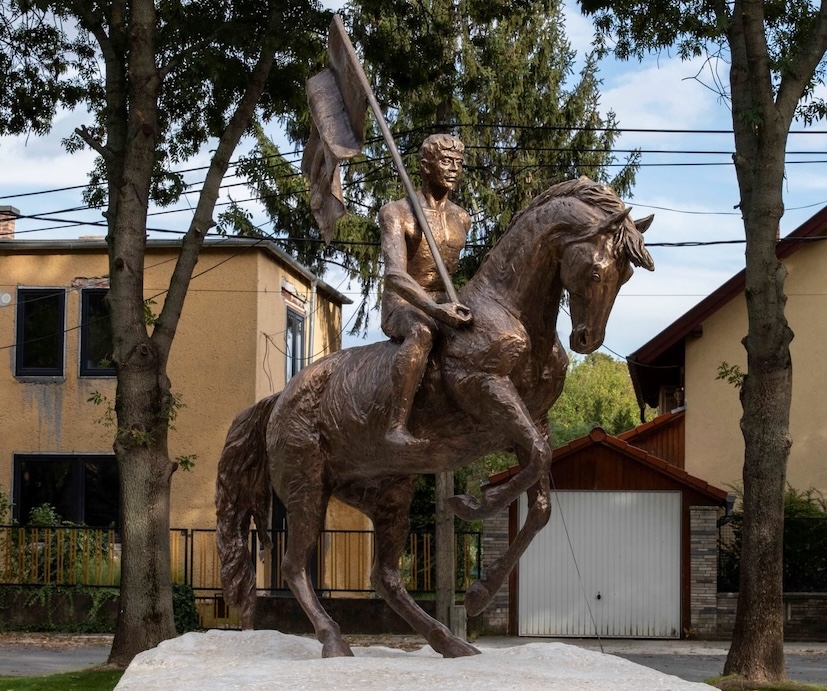
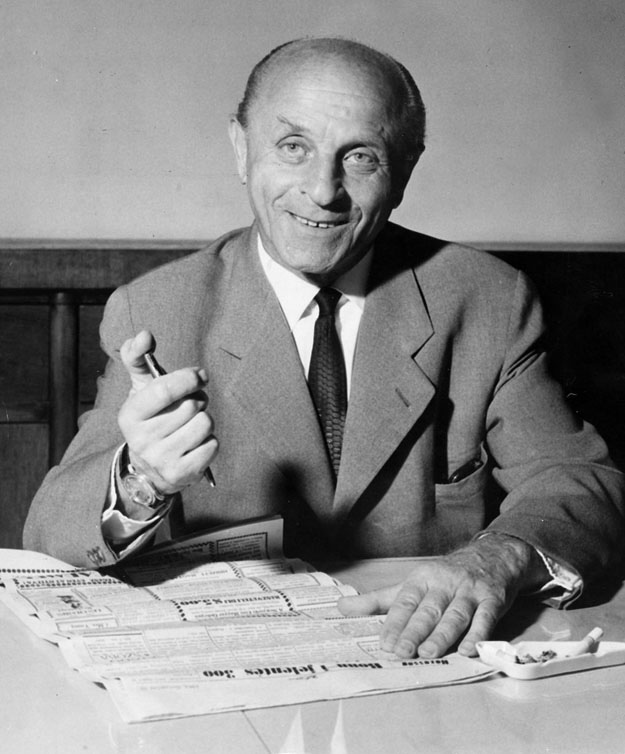
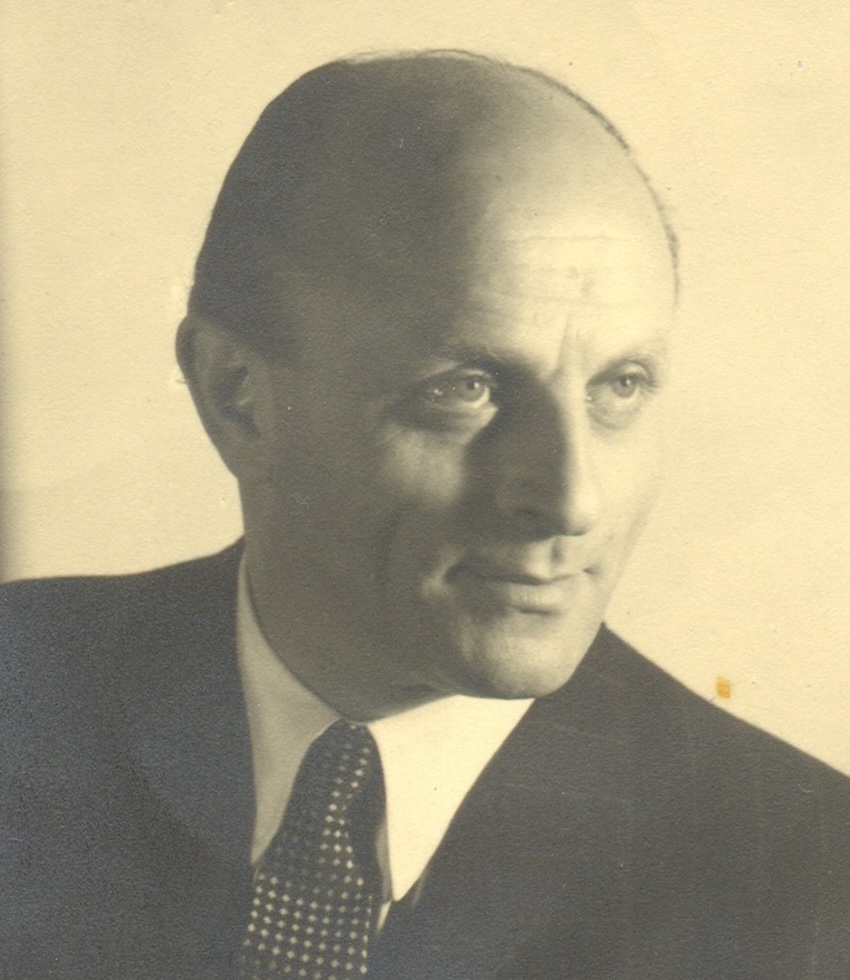
Argentina is a nation of immense cultural richness, abundant natural resources, industrial development, and a knowledge-based service economy that grows stronger every day. As a peaceful nation, we view with concern the conflicts currently unfolding around the world. We firmly believe that dialogue is the most powerful tool – and the only sustainable path – to achieving lasting agreements.
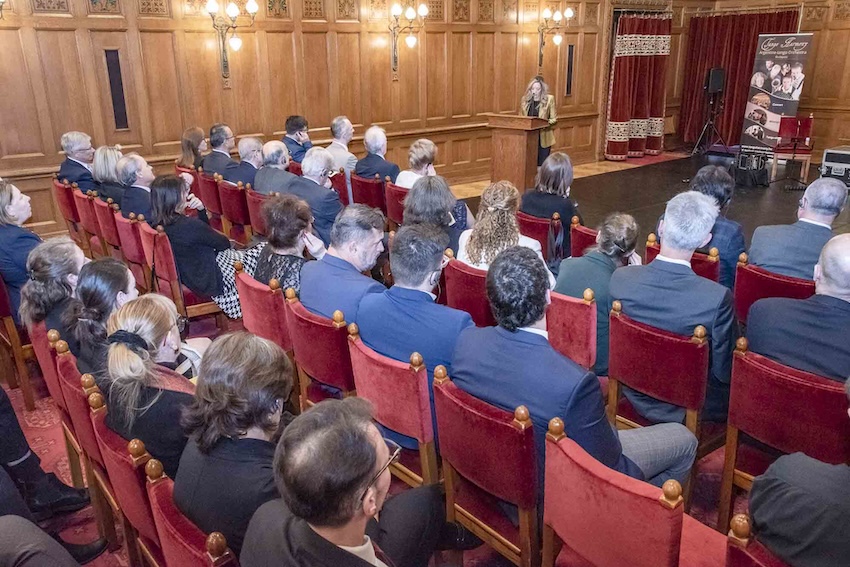
Dear friends,
This centenary of bilateral relations invites us to reflect on the past and look to the future. I am convinced that the second century of our partnership will bring even deeper bilateral ties and cooperation in key areas of mutual interest, including trade, investment, energy, infrastructure, connectivity, and scientific-academic collaboration.
As the ambassador of my country to Hungary, I believe there is no better moment than now – with fertile and favourable political ground – to bring our countries even closer. Together we can advance emblematic projects that honour our extensive shared history and confidently begin the next chapter of our cooperation.
Hungary’s EU Council Presidency in the second half of 2024, coinciding with the 100th Anniversary of Diplomatic Relations between Argentina and Hungary, provides an excellent framework to further strengthen our ties. We remain committed to fostering and realizing the immense potential shared by our nations.
Finally, I extend my heartfelt thanks to Mónika Bartos and her team, as well as to Manuel Torres and Carlos Coelho, for their invaluable support in organizing this event. As we look to the future, let us continue building on this legacy of friendship and cooperation, ensuring that the next century of our partnership is even more remarkable than the first. Thank you very much!”
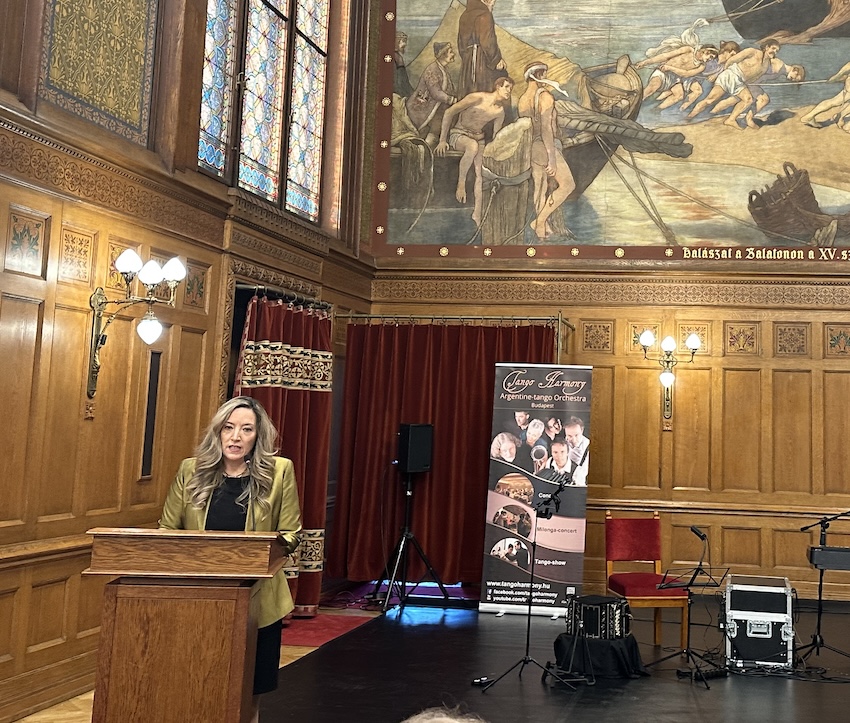
The next speaker was Ambassador Pál Varga Koritár, a distinguished career diplomat who has dedicated his life to Hungary’s foreign service. During his remarkable career, he was accredited to 15 countries, including Spain, Argentina and Mexico. Ambassador Varga Koritár also served as Hungary’s Ambassador-at-Large based in Budapest for Venezuela, Peru, Ecuador and Colombia. Beyond his bilateral work, he made significant contributions to multilateral diplomacy in his capacity as Ambassador of Good Service for the EU-LAC International Foundation, which unites 61 countries from the European Union, Latin America, and the Caribbean.
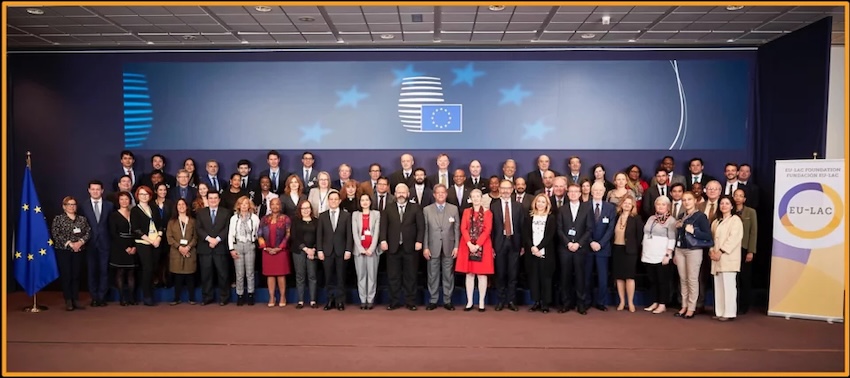
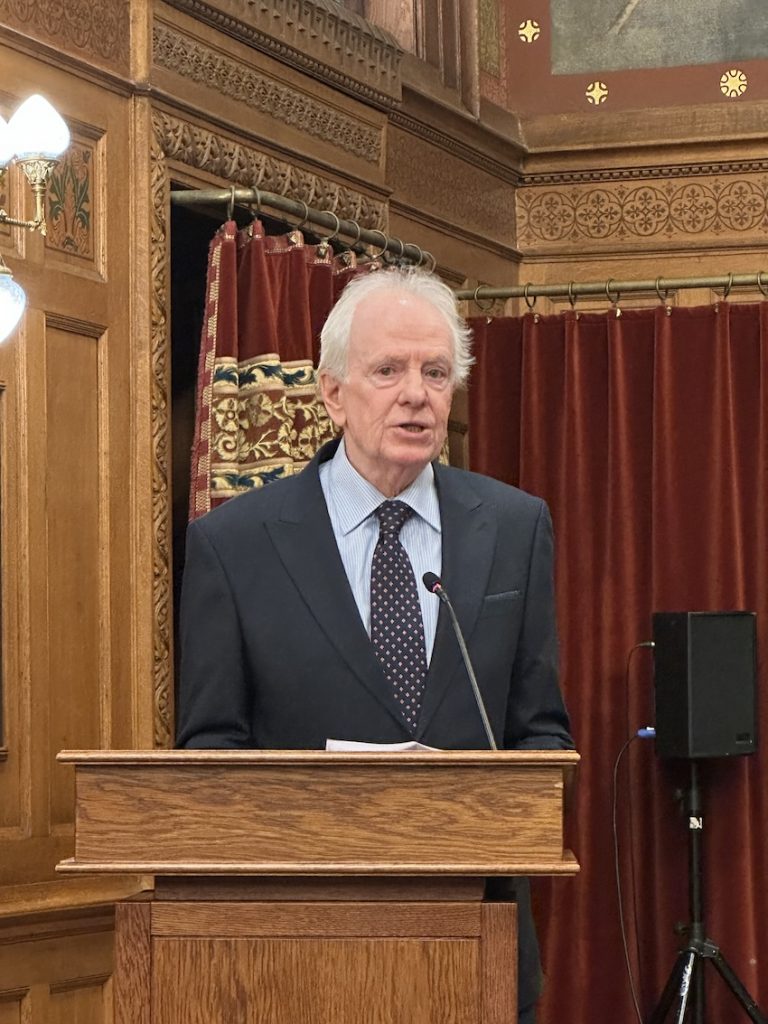
Ambassador Pál Varga Koritár delivered a lecture on 100 Years of Hungarian – Argentine Diplomatic Relations:
“It is a great honour and privilege for me to share some thoughts with you today on the occasion of the 100th anniversary of the establishment of diplomatic relations between Hungary and Argentina. This celebration becomes even more meaningful by being held in such an iconic venue, the Hungarian Parliament.
While we commemorate a century of formal diplomatic ties, the relationship between our peoples stretches back much further. Historical records show that János Varga, a Hungarian artilleryman, took part in Magellan’s expedition to Patagonia in 1520. Another Hungarian, István Máté, was part of Juan de Garay’s team when Buenos Aires was re-established. It is also noteworthy that the patron saint of Argentina’s capital, is Saint Martin of Tours, who was born in 316 during Roman times in the territory of present-day Hungary.
In the 17th and 18th centuries, Hungarian Jesuit missionaries played significant roles across Latin America, including in what is now Argentina. Among them, László Orosz stands out as the founder of the University of Córdoba in 1764 and the creator of Argentina’s first printing press in the same city.
In the 19th century, particularly after the Hungarian Revolution of 1848-49, many Hungarians sought new opportunities in Argentina. Figures such as General János Czetz, founder and first director of the Argentine Military Academy, remain emblematic of the deep historical ties between our nations.
Before the formal establishment of diplomatic relations, an important milestone was the signing of the Treaty of Friendship, Commerce, and Navigation between the Austro-Hungarian Monarchy and Argentina in 1870. This treaty, which incorporated the principle of most-favoured-nation treatment, remained relevant in Hungary’s legal framework well into the 20th century.
At the turn of the 20th century and after World War I, many Hungarians emigrated to America in search of better opportunities. Tens of thousands found a new home in Argentina. In 1923, Argentina became the first Latin American country to recognize Hungary’s independent status, paving the way for the establishment of diplomatic relations in 1924 – an anniversary we celebrate today.
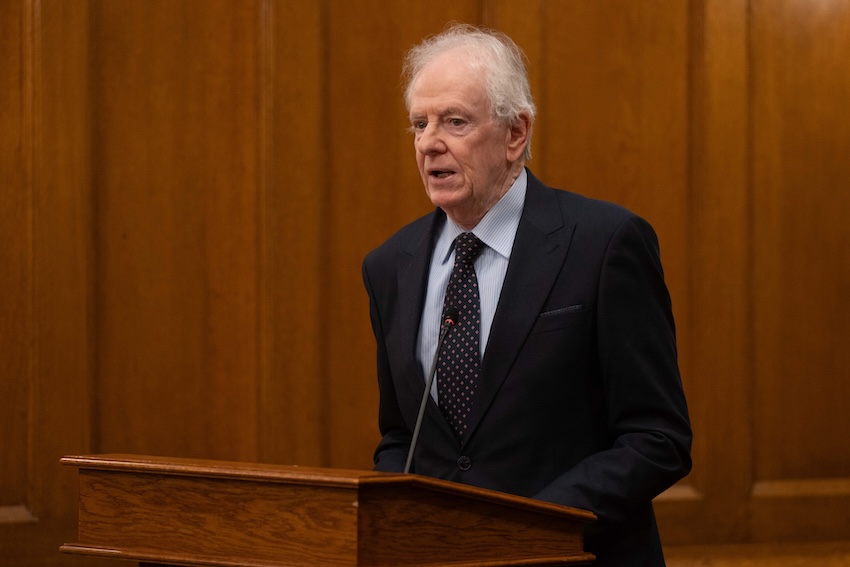
The events of the past century are too numerous to recount in detail. However, it is clear that Argentina has consistently been one of Hungary’s most important partners in Latin America, regardless of the political circumstances in either country. Only World War II caused a significant disruption, when Argentina broke off diplomatic ties with Hungary in February 1944. During this period, Sweden represented Hungarian interests in Buenos Aires. By 1946, both countries began to restore relations, culminating in the re-establishment of diplomatic ties in July 1949.
Despite the challenges of the Cold War and the differing alliances of Hungary and Argentina between 1950 and 1990, bilateral relations were marked by mutual respect and the pursuit of shared opportunities.
The democratic transitions in Argentina in 1983 and Hungary in 1990 ushered in a new era, characterized by shared democratic values. In the subsequent decades, mutual interest grew, as reflected in numerous high-level visits and new bilateral agreements.
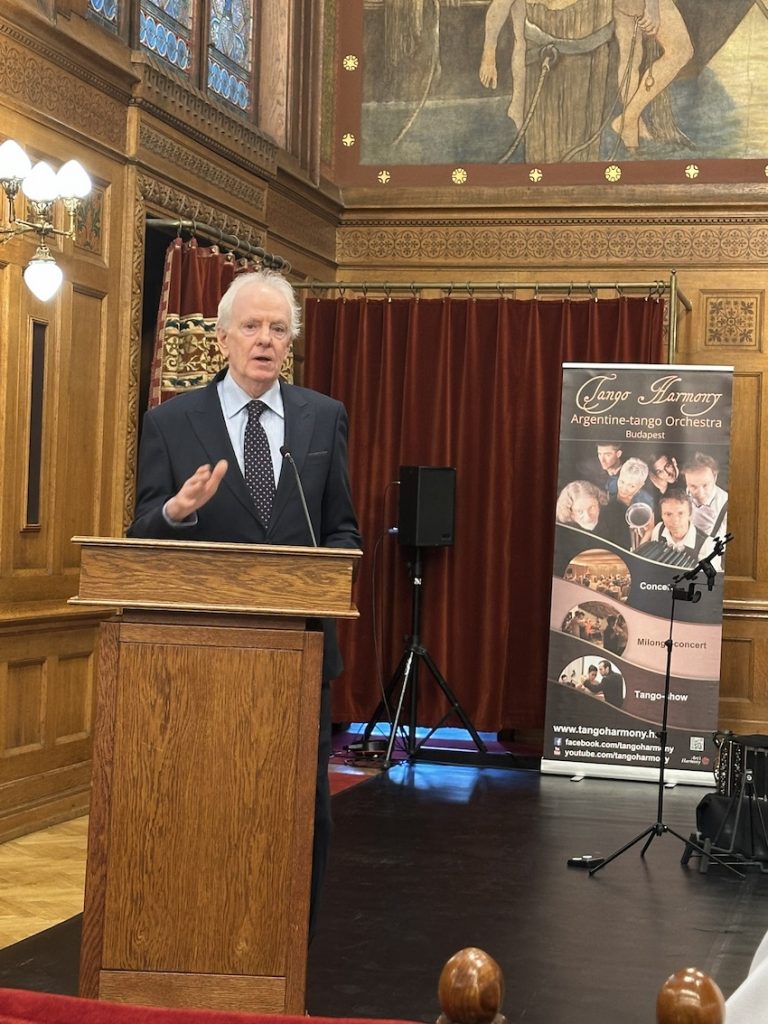
Our strong bilateral relationship rests on three enduring pillars: mutual economic interests, shared cultural values, and commitment to the well-being of the Hungarian community in Argentina.
In the past, Argentina was a key market for Hungarian products such as Ganz trains, Tungsram lightbulbs, and pharmaceuticals, while Hungarian markets welcomed Argentine leather goods and agricultural products.
Today, cooperation has expanded to include promising fields like the peaceful use of nuclear energy and space exploration.
Argentina’s warm welcome of Hungarian immigrants deserves our deepest gratitude. These individuals, in turn, have become valuable members of Argentine society. Notable figures include László (Ladislao) Bíró, inventor of the Ballpoint Pen; architects the Kálnay brothers and János Kronfusz; artists such as Lajos Szalay and Pedro Roth; and contemporary writer Federico Andahazi.
Today, an estimated 40,000 to 45,000 Argentine citizens trace their roots to Hungary. From the outset, they have organized themselves into associations to preserve their cultural and linguistic traditions and maintain ties with the homeland. This connection is symbolized by the relic of Saint Stephen in the Cathedral of Mar del Plata.
Let me conclude with a personal note that highlights the enduring and friendly nature of our bilateral relations. My first visit to Argentina was in 1970, followed by another in 1972 for a major Hungarian Trade Exhibition in Buenos Aires. During that time, I worked with Antonio Estrany Gendre, an Argentine foreign ministry official. Decades later, in 2010, when I returned to Argentina as ambassador, I was surprised and delighted to meet Estrany Gendre again. His expertise and connections proved invaluable in strengthening my mission, for which I remain deeply grateful.
Today, as we commemorate 100 years of official relations between Hungary and Argentina, we celebrate a foundation that offers us the opportunity to further enrich and strengthen our cooperation in the decades to come. Together, we can address global challenges more effectively and build an even brighter future. Thank you for your kind attention.”
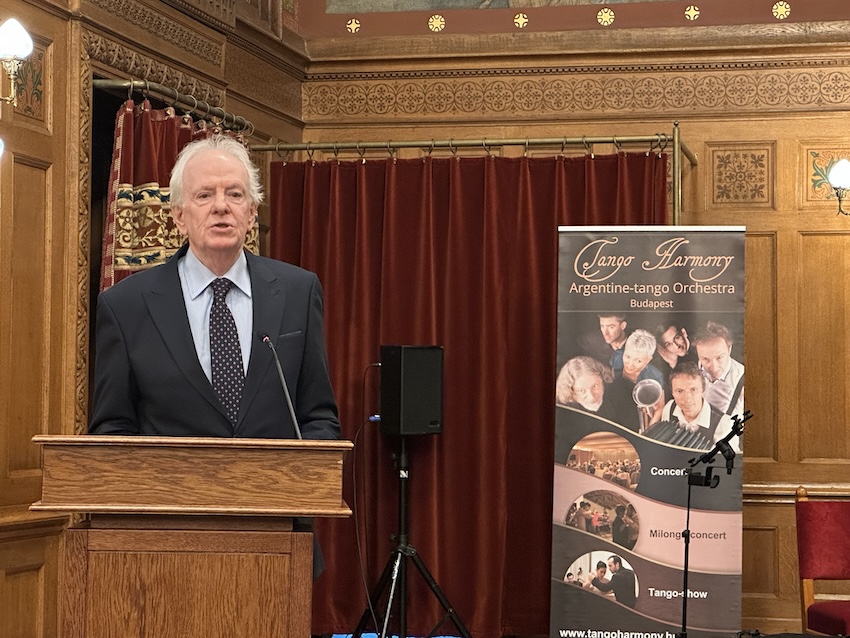
Another fascinating topic occupied the participants when Mr. Sándor Rácz, President of the Foundation for Hungarian Innovation, spoke about the Work of László Bíró – Our Shared Intellectual Legacy.
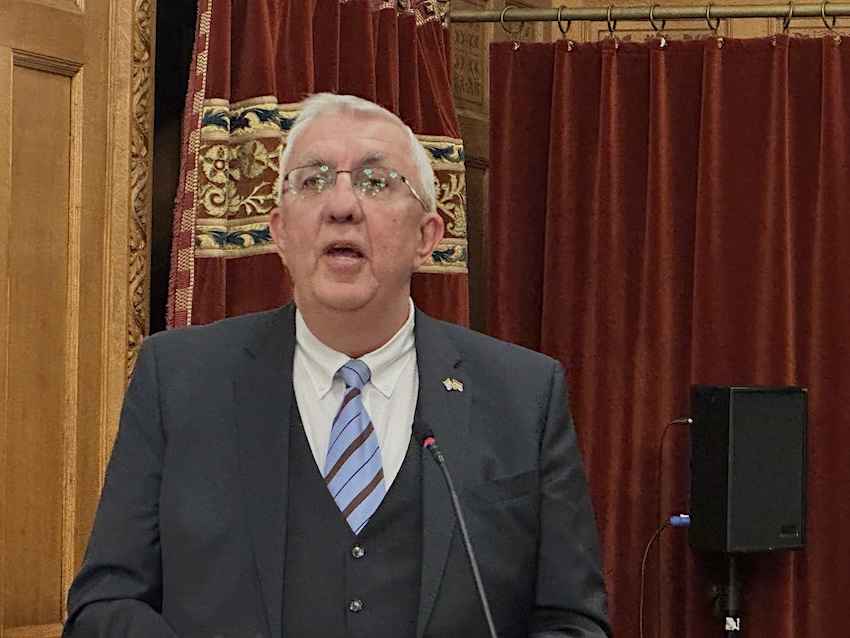
László Bíró, born in Budapest in 1899 and died in Buenos Aires in 1985, was an extraordinary innovator and visionary thinker whose ground-breaking inventions changed everyday life and bridged the gap between Argentina and Hungary.
From a young age, his curiosity and passion for creativity defined his career as an inventor. Most notably, he revolutionized writing technology with the invention of the ballpoint pen, patented in Buenos Aires in 1943. What began as a simple solution to a smudging problem became a global phenomenon, reshaping communication worldwide.
However, Bíró’s brilliance extended far beyond the ballpoint pen, widely known as Biropen. A true polymath, he held over 30 patents, and made contributions to diverse fields such as quick-drying ink, flameproof bricks, and early automotive technologies. His inventive spirit and commitment to practical problem-solving drove each of his creations, highlighting his tenacity and perseverance in overcoming technical challenges.
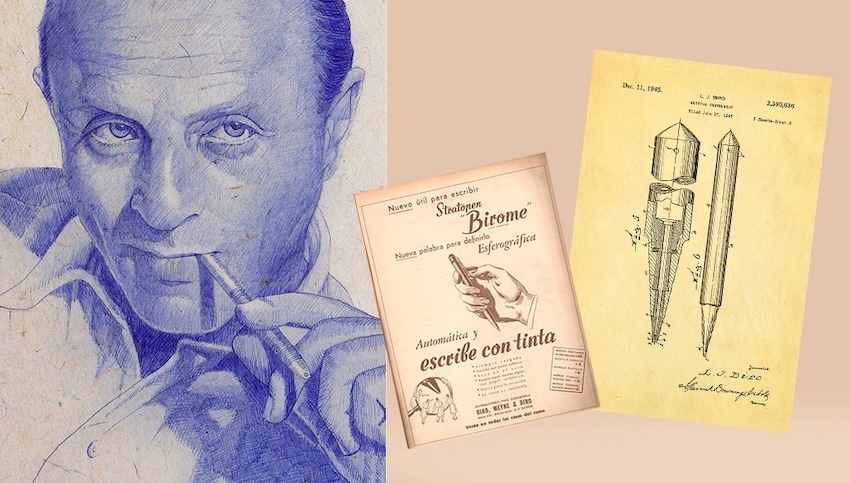
In Argentina, where he found a welcoming home, Bíró’s contributions are celebrated annually on Inventors’ Day, 29 September, his birthday. This day honours his transformative impact on technology and creativity.
In 2024, the world commemorated the 125th anniversary of his birth, further acknowledging the lasting influence of his work.
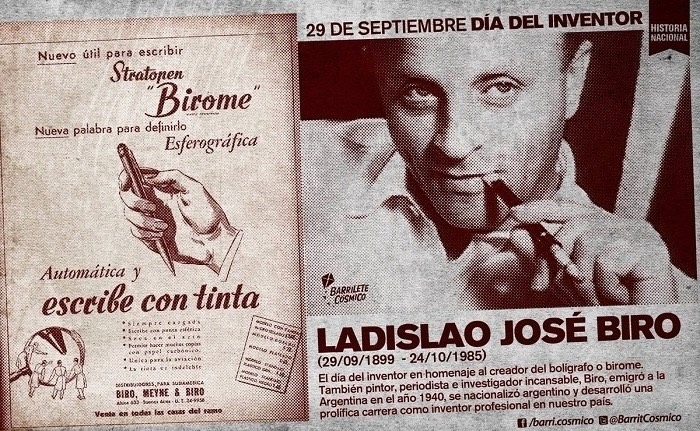
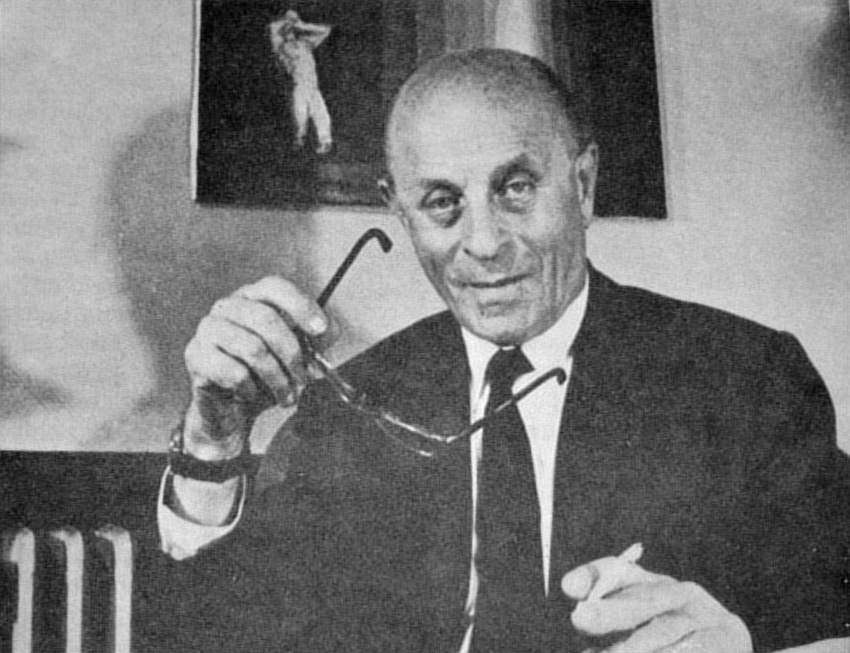
László Bíró’s legacy also represents a symbol of collaboration between Argentina and Hungary. In 2016, the László Bíró Award was established by Mr. Sándor Rácz to honour those who have made significant contributions to strengthening the bond between the two nations. In 2019, the world-renowned opera singer José was also bestowed with the Biro Award, reflecting the genius inventor’s lasting impact on both countries.
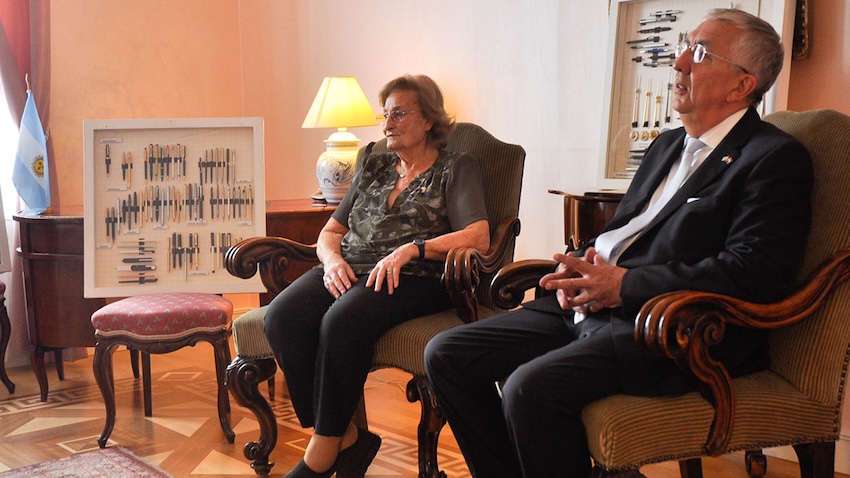
Through this tribute, Mr. Rácz expressed his hope that Bíró’s extraordinary story would inspire future generations to embrace curiosity, overcome challenges and pursue ideas that can change the world. Bíró’s life serves as a reminder that one person’s creativity can leave an indelible mark on humanity, fostering unity and progress across borders.
The Biro Foundation – a non-profit organization with the mission of promoting activities and projects related to creativity and education – was founded in 1999 by Mariana Biró in Buenos Aires on the occasion of the centenary of her father Ladislao José Biró’s birth. Ladislao Biró, the inventor of the ballpoint pen, inspired the foundation as a means of developing Argentina’s inventive potential.
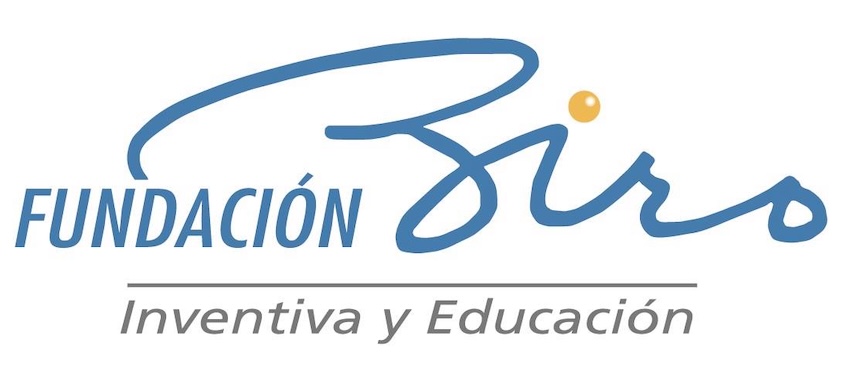
The final contribution to the celebration came from Manuel Torres, a Colombian writer and literary connoisseur. His heartfelt words deepened the significance of the event with a lecture entitled “One Hundred Years of Cultural Echoes: A Century of Dialogue and Convergence Between Argentina and Hungary”:
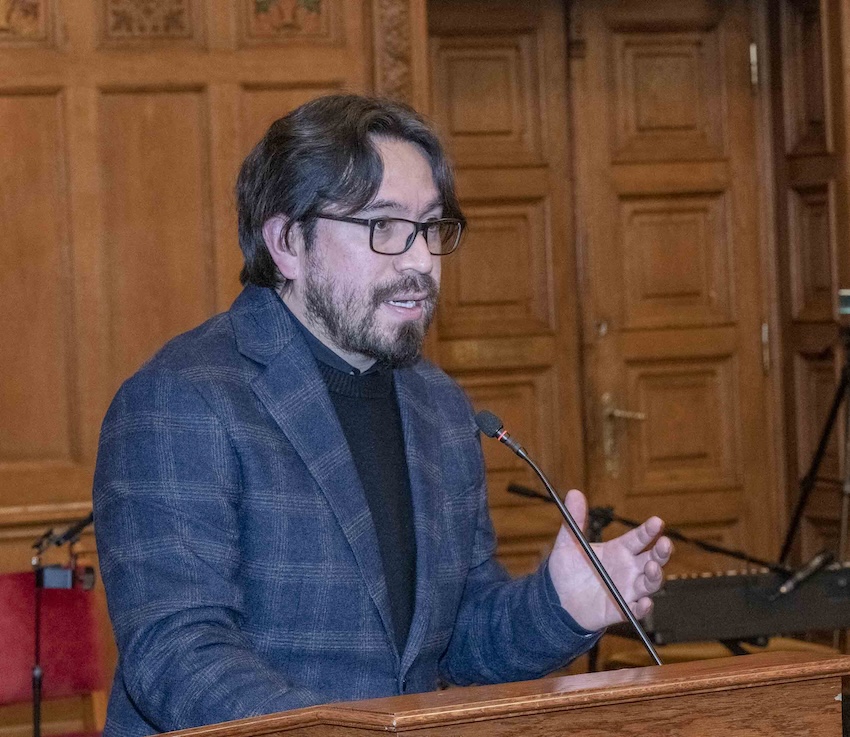
“Distinguished Representatives of the Hungarian Parliament, Esteemed Ambassadors and Diplomats, Honourable Friends of Culture, Ladies and Gentlemen,
I stand before you to speak of a dialogue that has defied oceans and mountains, a connection that not even the vast Atlantic has been able to interrupt. Today we celebrate 100 years of encounters and convergences between two nations that, though separated by the geographies of the world, have recognized each other in the depths of their spirits.
Argentina and Hungary, seemingly distant countries, share a common destiny: both have been shaped by nostalgia and the relentless pursuit of freedom. We are defined by a paradoxical love for the past and an irrepressible drive toward the new. It is this duality, this unresolvable tension, that has shaped our literature, our art, and our understanding of the world.
For our peoples, nostalgia is not merely a melancholic longing. It is a creative force, like Prometheus’s eternal fire, enabling us to shape our tragedies and triumphs. In Argentina, it is the sound of the bandoneón weeping on the street corners of Buenos Aires, where the tangos of Gardel and Troilo became anthems for those exiled from their own lives. In Hungary, the csárdás and Béla Bartók’s compositions carry the melancholy of fields and villages – the echo of lands that seem eternal yet are ever-changing.
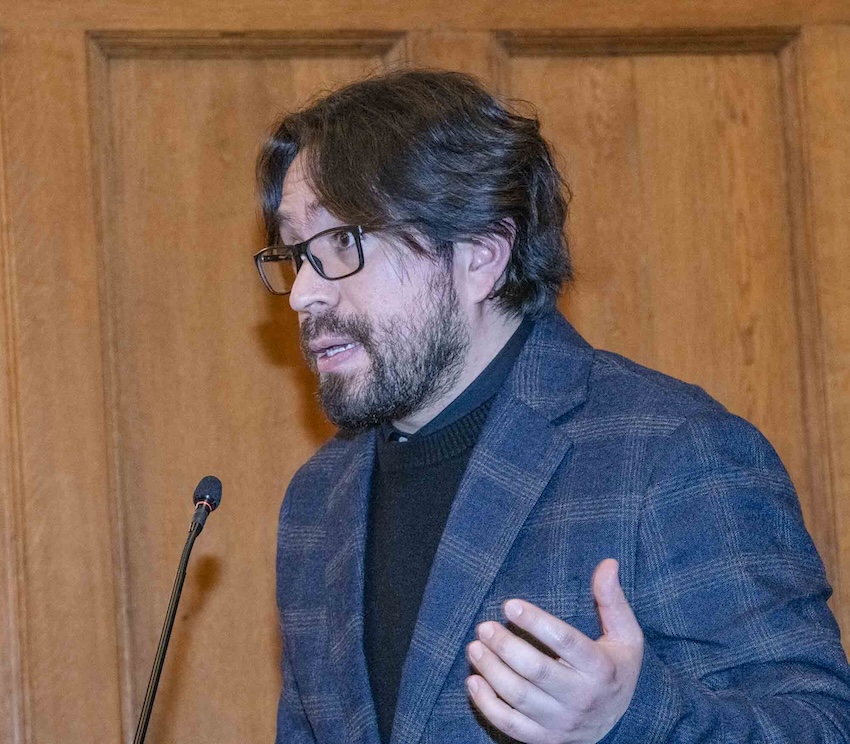
The Argentine writer Jorge Luis Borges dreamed of infinite libraries and labyrinths where memory was both a refuge and a curse. ‘We are our memory,’ he said, ‘that chimerical museum of shifting shapes, that pile of broken mirrors.’ On the other hand, Gyula Krúdy wanders through dreams and memories in The Adventures of Sindbad, reflecting this same spirit: memory as an unfinished map, a journey through what is lost and irretrievable. Memory as a path to discovering where we belong and what our origins are – a memory sung by our grandparents as they recounted their ancestors’ journeys across distant lands to reach their promised lands.
But this nostalgia is not resignation. In the words of Alejandra Pizarnik and Gizella Hervay, who wrote from the deepest shadows, nostalgia transforms into rebellion, a consecration of life in the face of existential void. Pizarnik, gazing into the abyss of language, declared: ‘Everything that breaks is our mirror.’ Hervay, amidst the losses of her time, built poems that endure like flowers among ruins, like blossoms in infinity.
If nostalgia connects us to what once was, freedom propels us toward what can be. For Argentina and Hungary, freedom has been an ideal often threatened yet repeatedly reclaimed. The quests and struggles have been epic, passionate, and fraught with suffering.
Both nations have paid a high price for their freedom, yet both have shown that freedom is never granted – it is always won. Domingo Faustino Sarmiento, in his work Facundo, framed the struggle between civilization and barbarism as the central drama of his time. Similarly, János Arany, in The Ballad of Toldi, explored how the conflicts between tradition and change define nations. Both, from different contexts, wrote about a shared destiny: the eternal tension between order and chaos. Sarmiento and Arany revealed the struggle of existence within a vast, flat landscape that conceals an infinite horizon. It is ‘the other’ that defines us as peoples. It is reconciliation with difference that allows us to understand where our freedom begins.
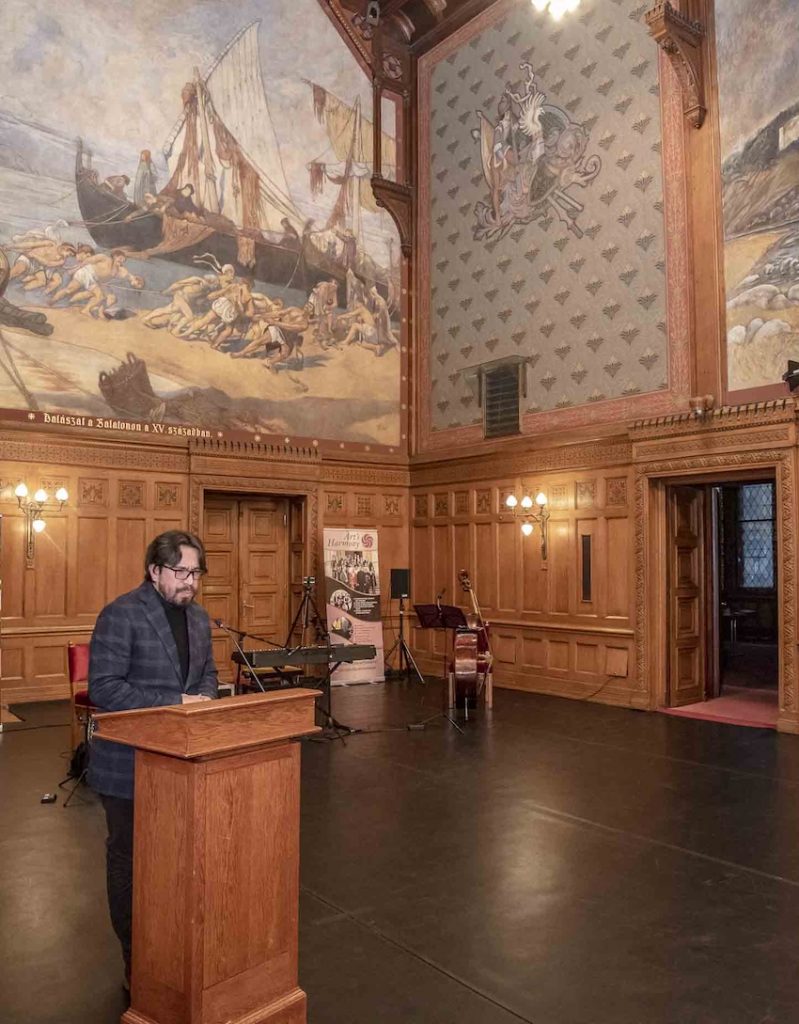
In art, our nations have found a common language that transcends borders. Julio Le Parc and László Moholy-Nagy broke the barriers of visual perception to create works that invite the viewer to participate, to become part of the creative process. Their works, playing with light, movement, and perception, are metaphors for what our cultures have sought to do: illuminate the shadows of the past and find motion within the static.
In cinema, Lucrecia Martel and Béla Tarr have challenged conventional narratives to reveal a fragmented yet deeply human world. Tarr, in Sátántangó (Satan’s Tango), uses time as a protagonist, stretching the experience to the unbearable, while Martel, in Zama, deconstructs the colonial narrative with an aesthetic filled with silences and absences. Both teach us that art can be a philosophical portrait of the spectrum of human emotions that shape our identity.
What makes this dialogue between Argentina and Hungary so special? It is precisely its insoluble nature. Our cultures do not seek to merge but to converse. We are like two rivers – the Río de la Plata and the Danube – running parallel in the course of time: always aware of each other, in Heraclitus’s words, of their becoming.
Yes, we know, the tango is not a csárdás, but both express the soul of peoples who have learned to dance with adversity. It is the melancholy of resistance. Borges and Krasznahorkai do not share a language, but both explore the labyrinths of time and fragmented memory. Julio Le Parc and László Moholy-Nagy did not work with the same tools, but both challenged the limits of art to create new ways of perceiving light.
Today, as we celebrate this centenary of cooperation, we look not only to the past but to the future. May the echoes of this century of cultural dialogue inspire us to continue building bridges. May our differences remain our greatest wealth, and may our similarities serve as a compass to always find each other – where nostalgia calls us, for it is also the place where freedom is born.”
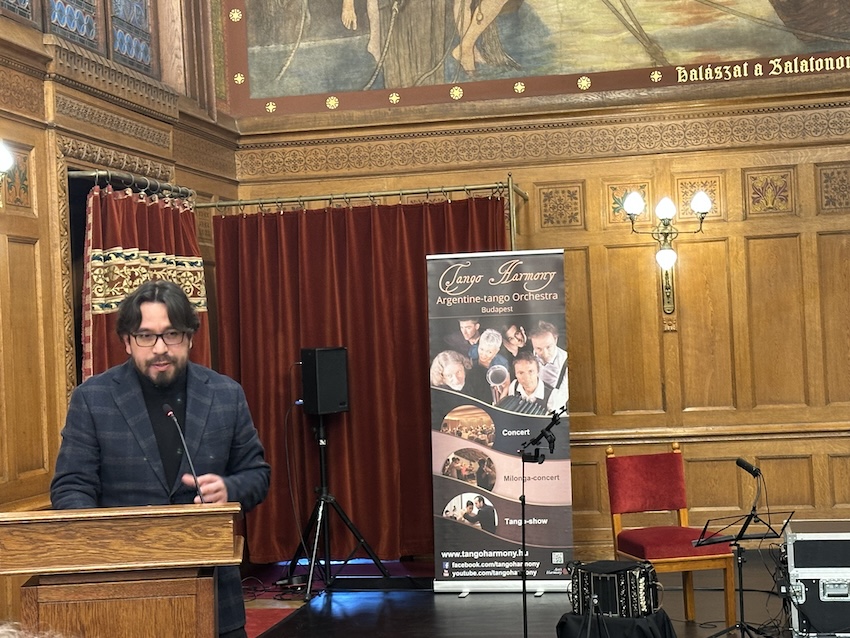
The event concluded with a captivating cultural performance, highlighted by an emotionally powerful tango demonstration from Lucas and Antonella. Their graceful talent, accompanied by live music from the group Art Harmony, enchanted the audience. The tango, a passionate dance deeply rooted in Argentina’s cultural identity, also resonates globally as a universal expression of the human experience. Symbolizing the vibrant spirit of Argentina, it beautifully represented the cultural connection between Hungary and Latin America.

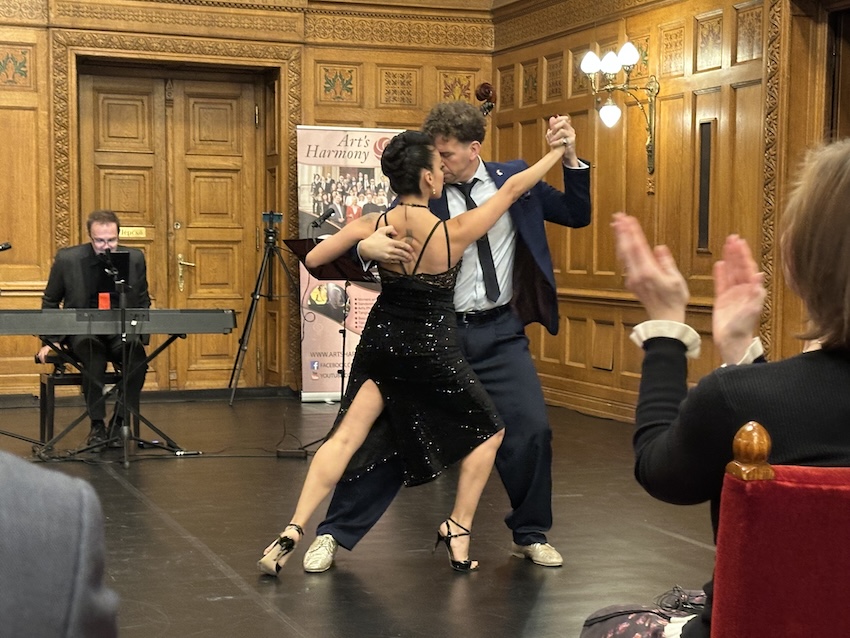
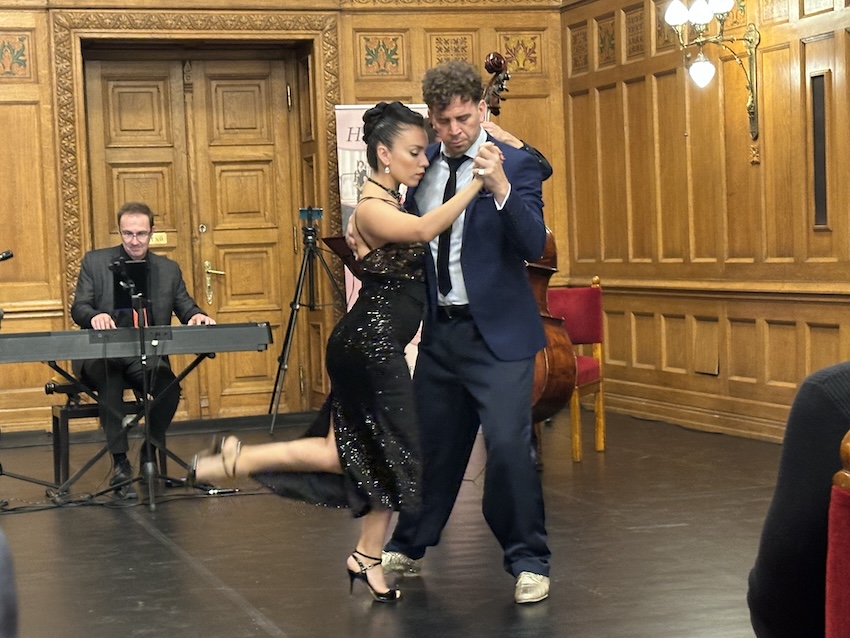
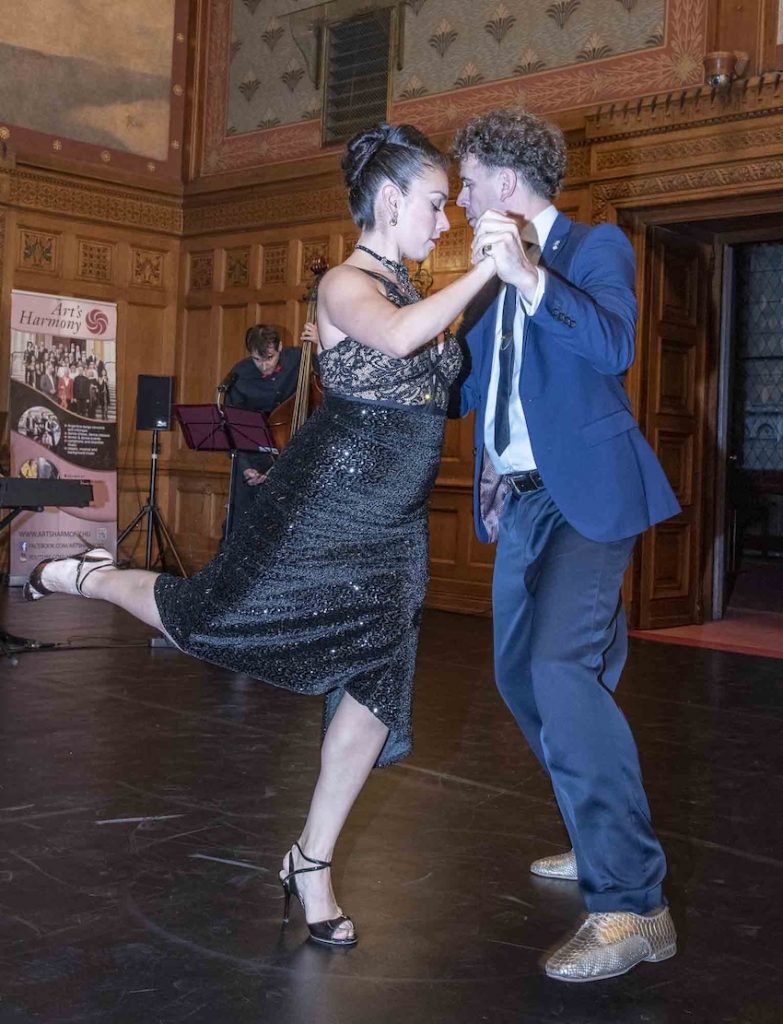
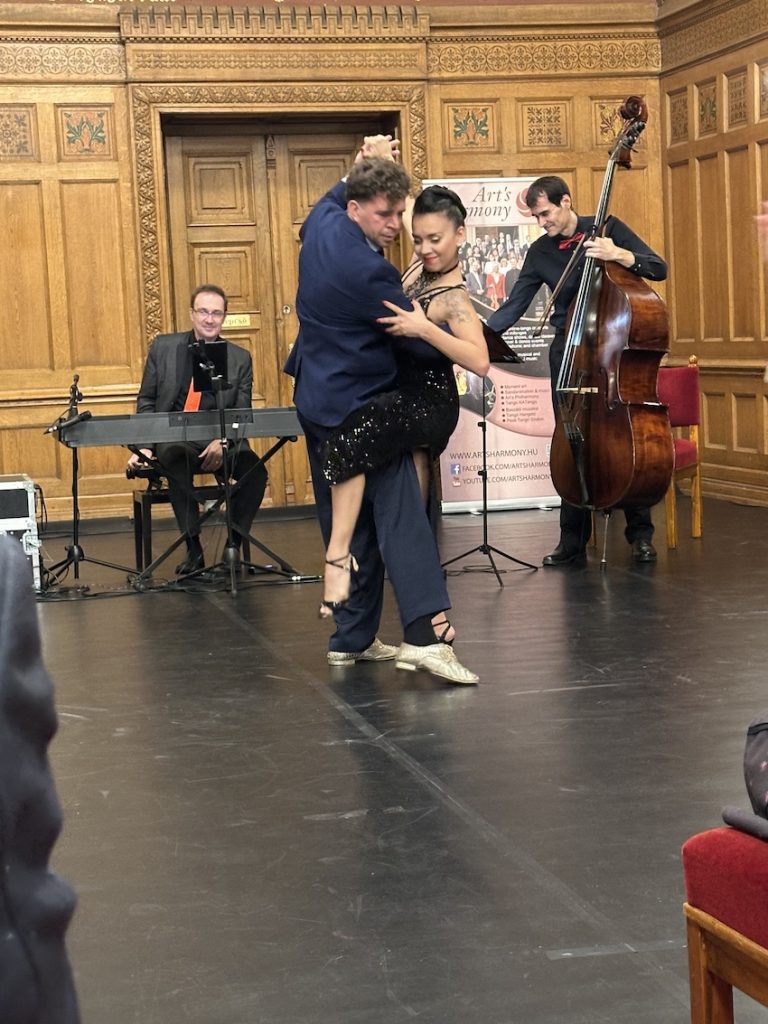
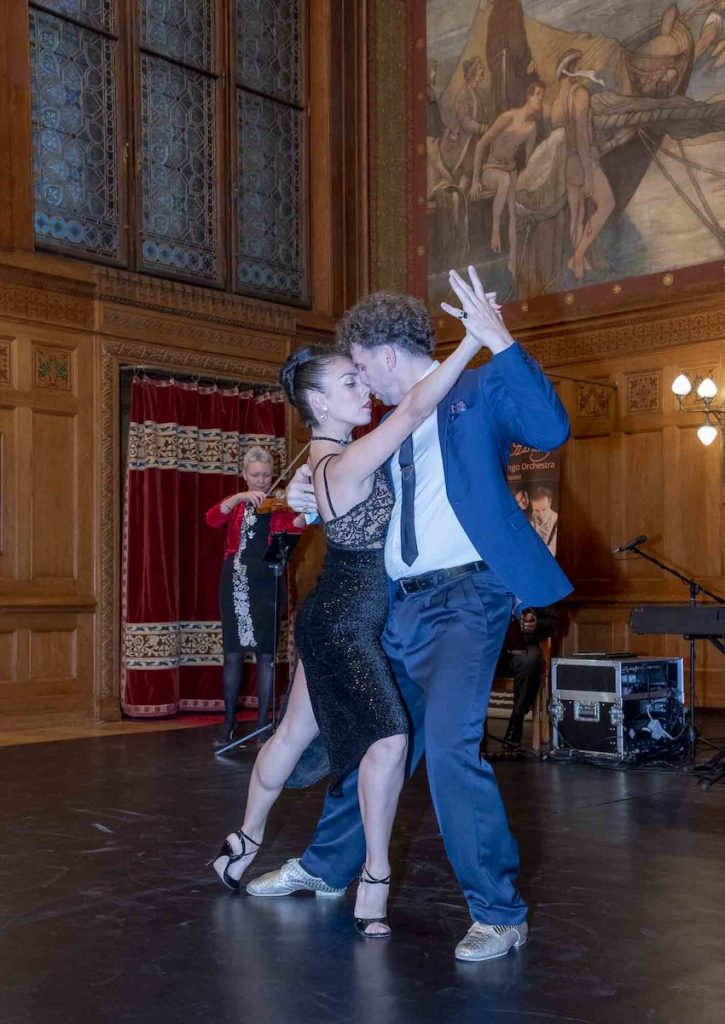
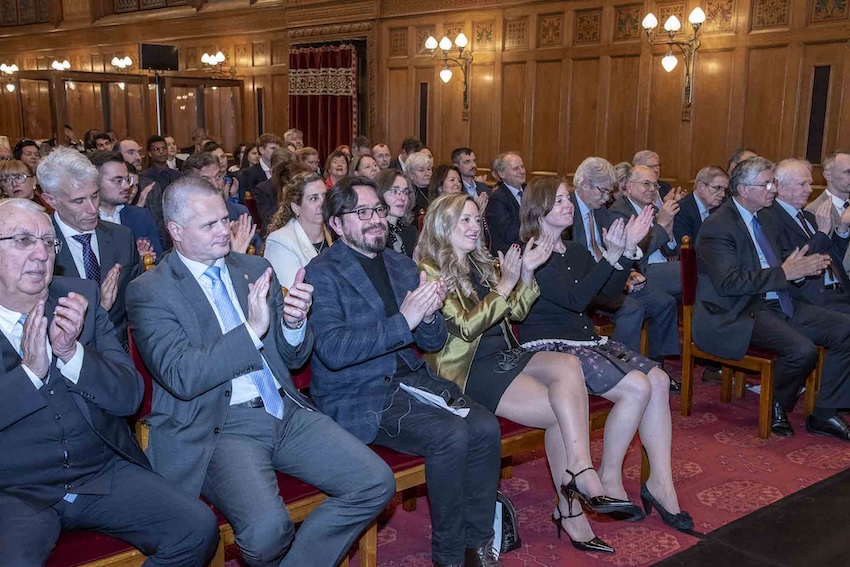
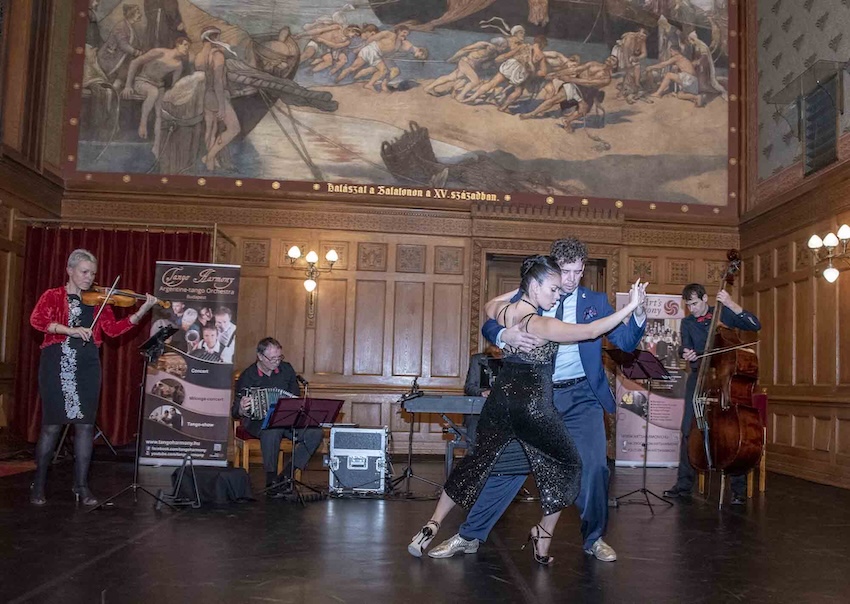
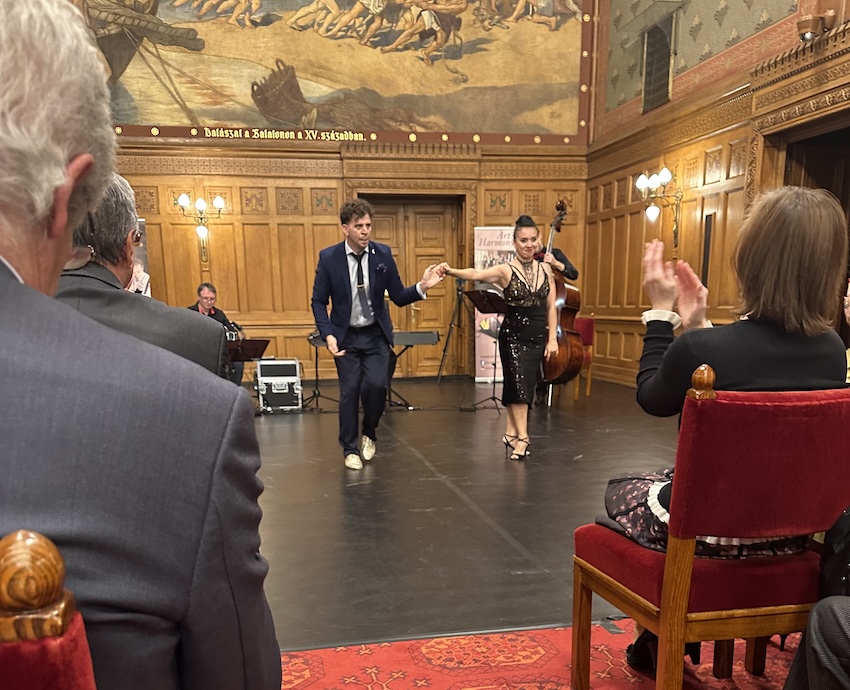
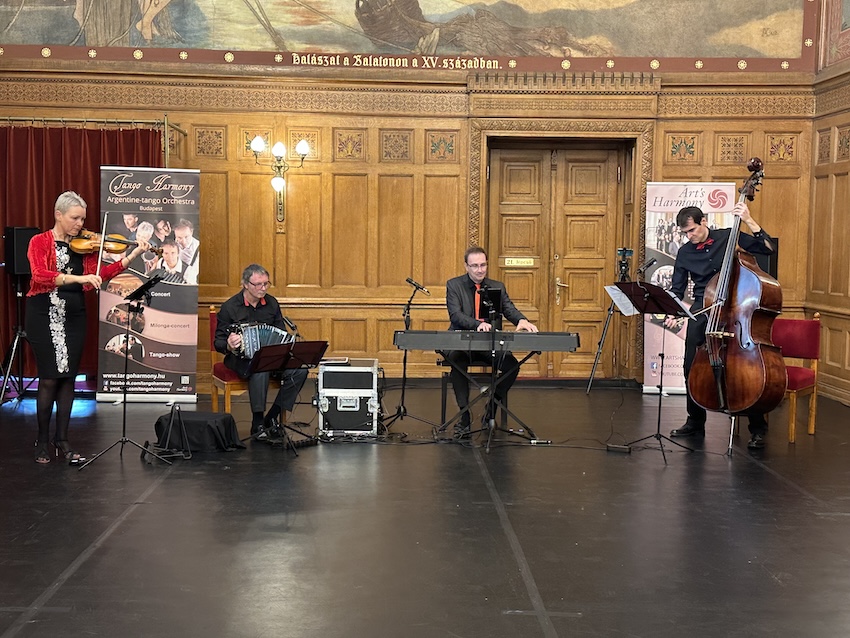

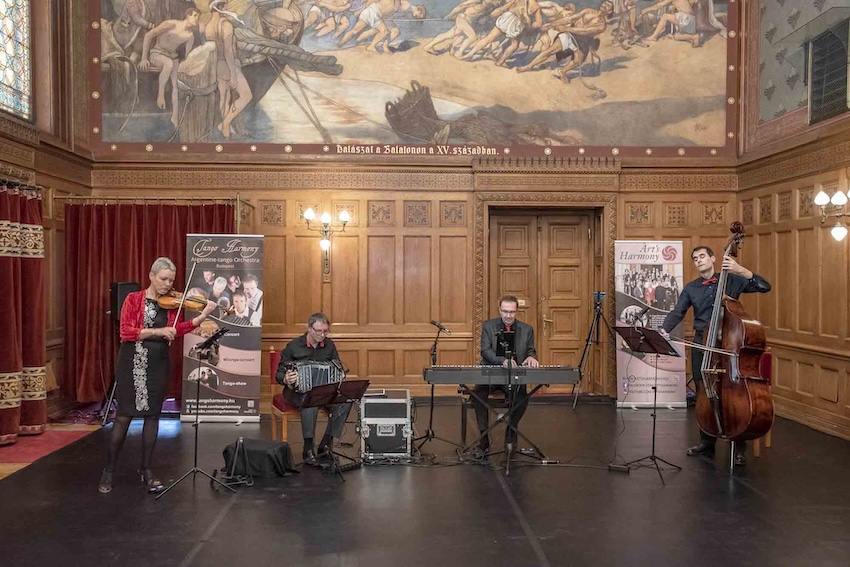
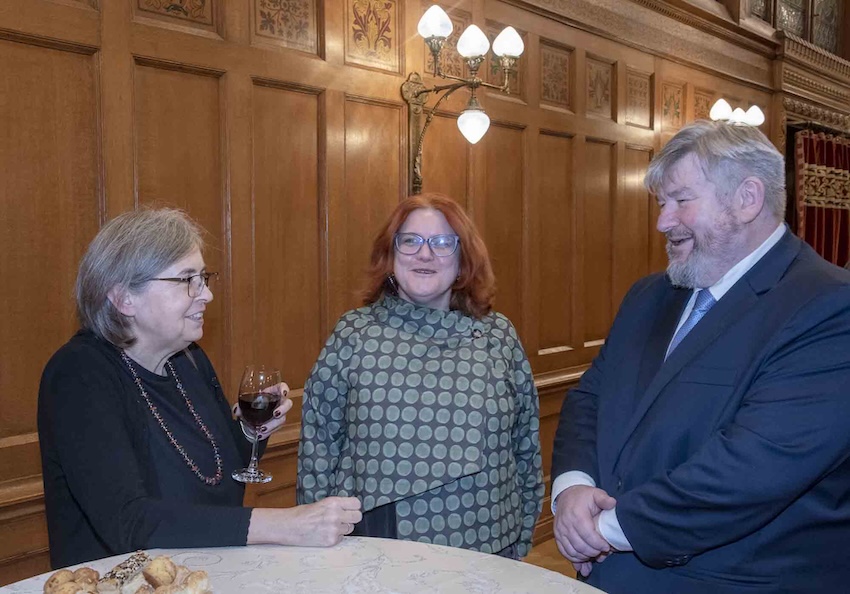
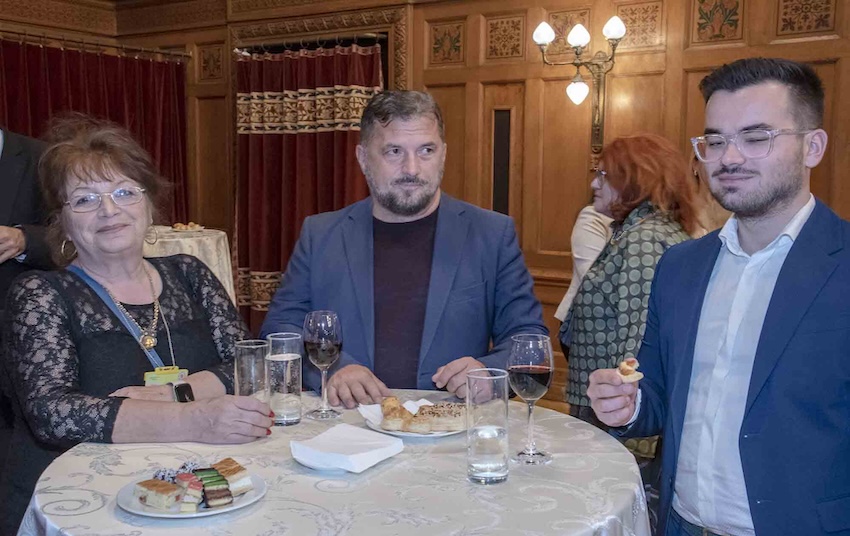
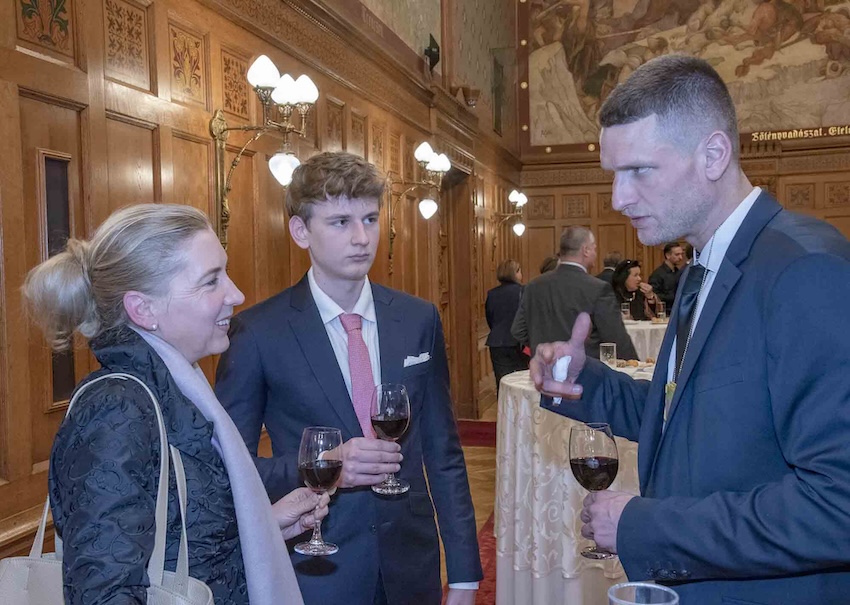
Source: Embassy of Argentina in Budapest
Photos by the National Assembly – Foreign Department Hungarian Secretariat of Inter-Parliamentary Union, Embassy of Argentina in Budapest, DPA





